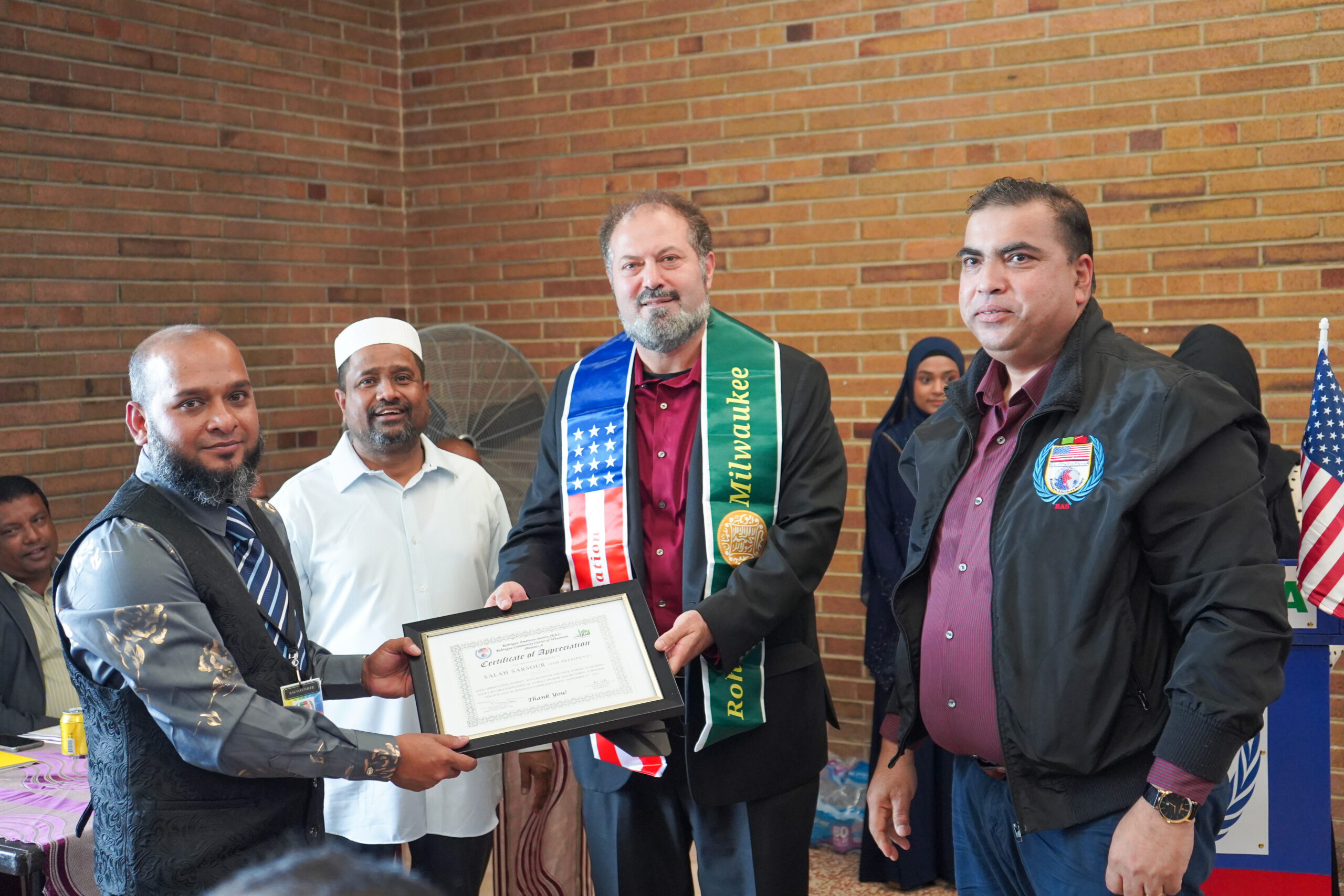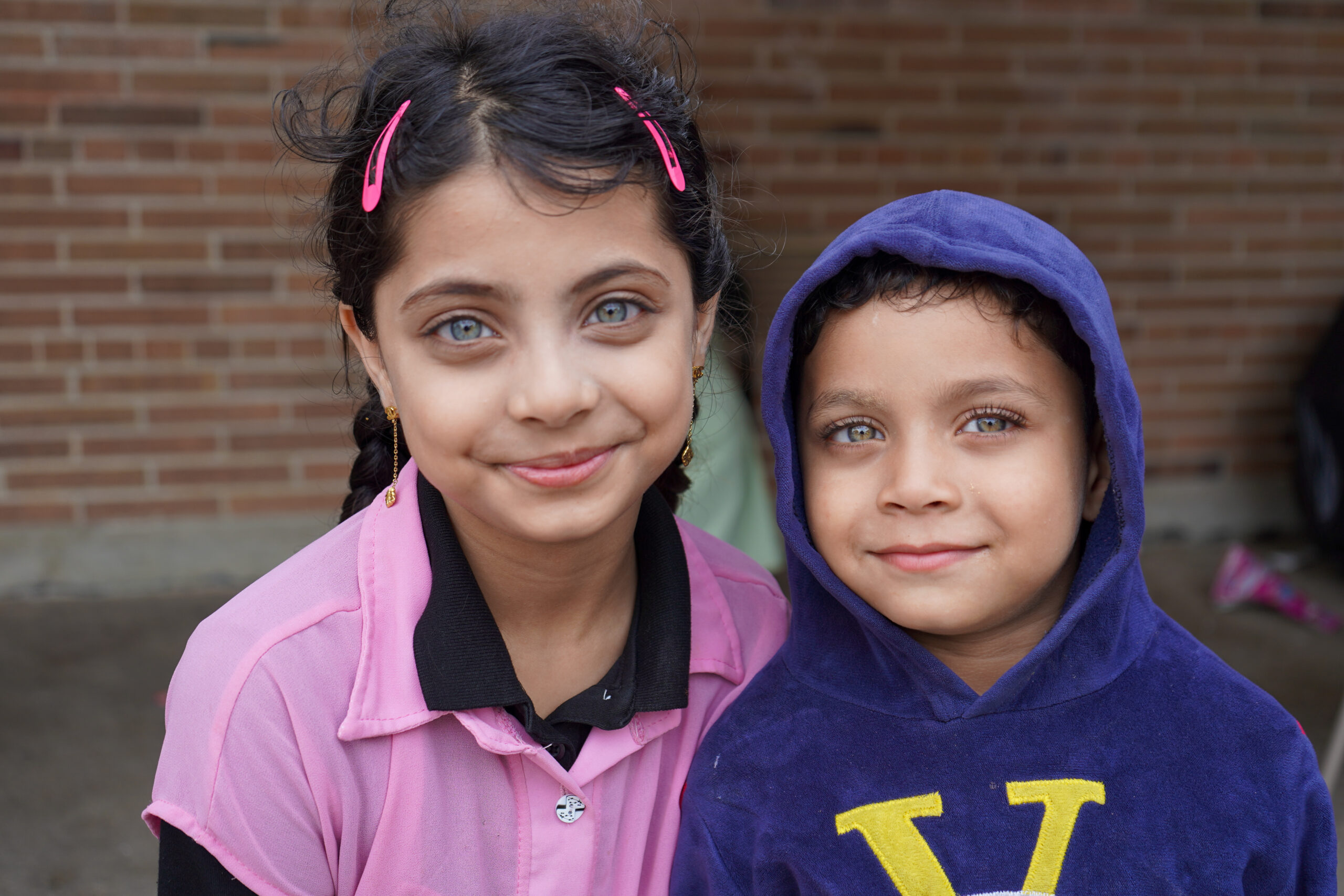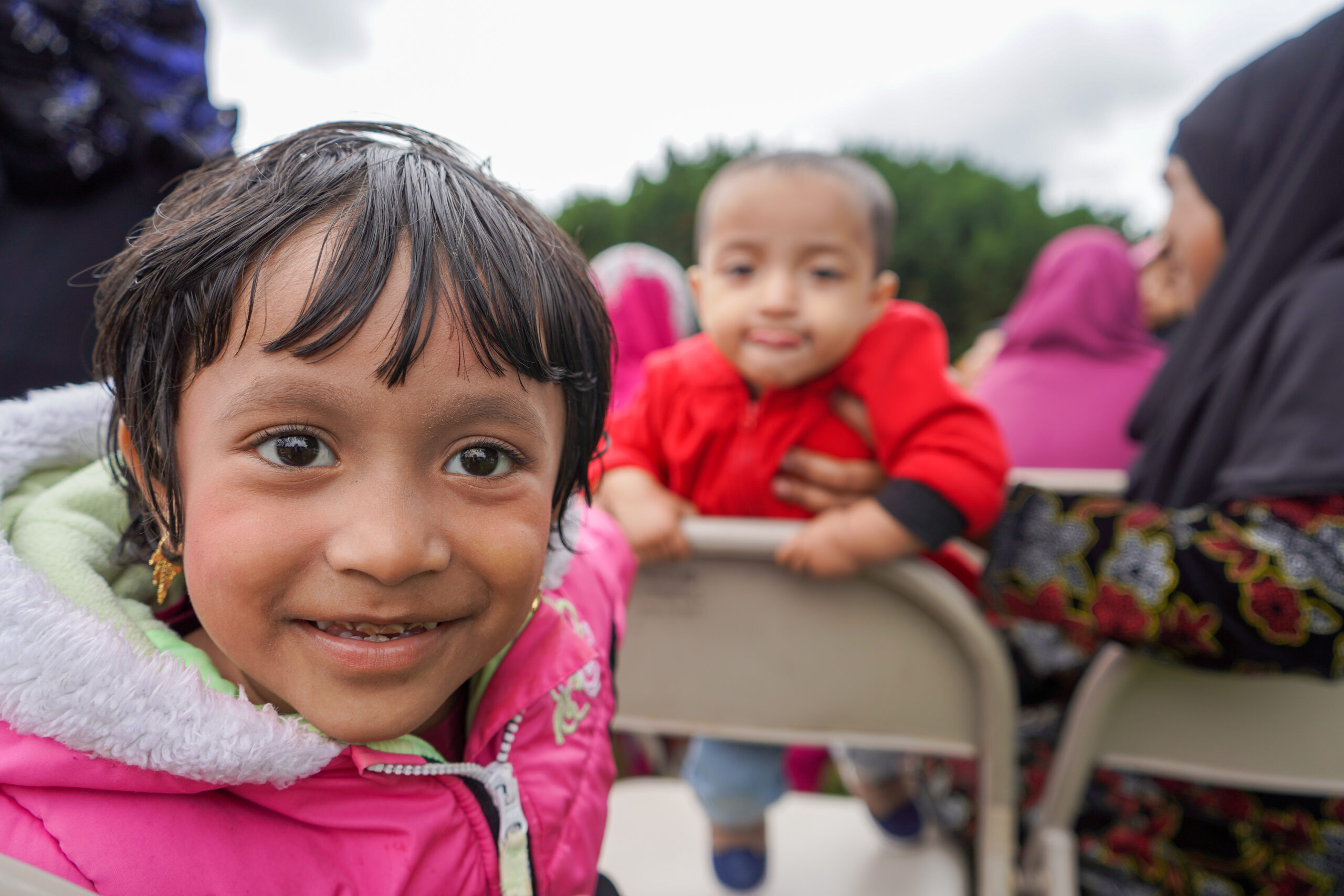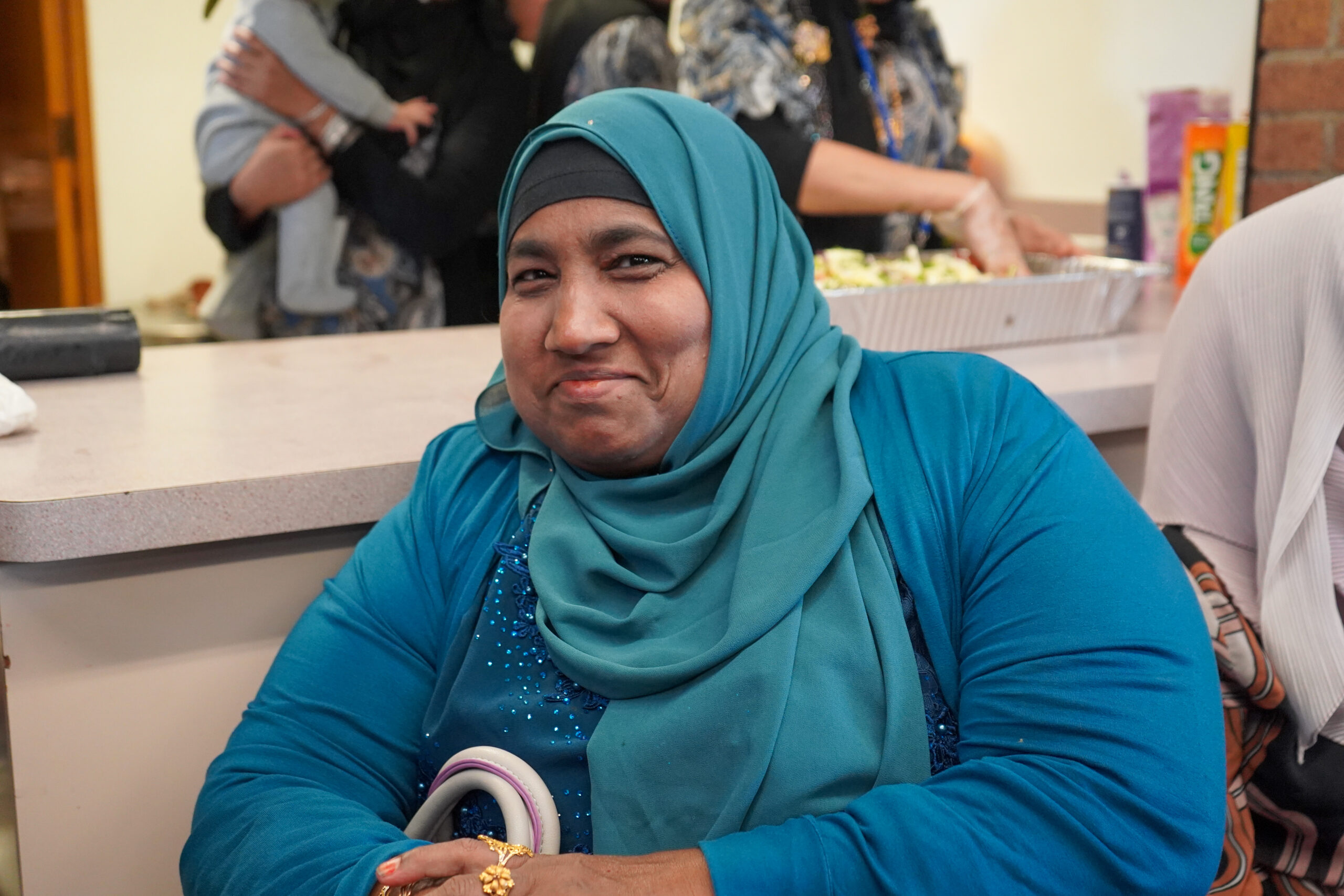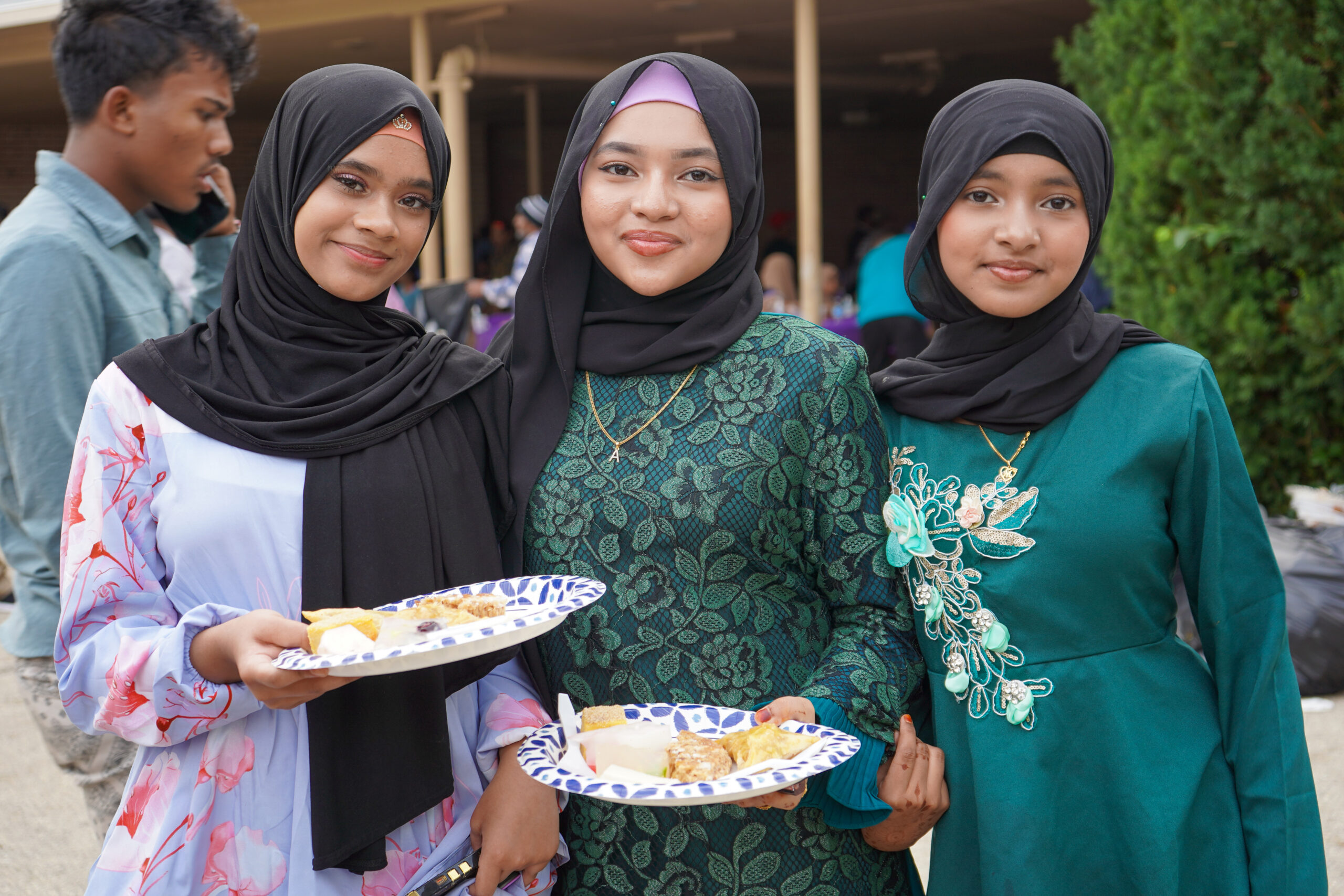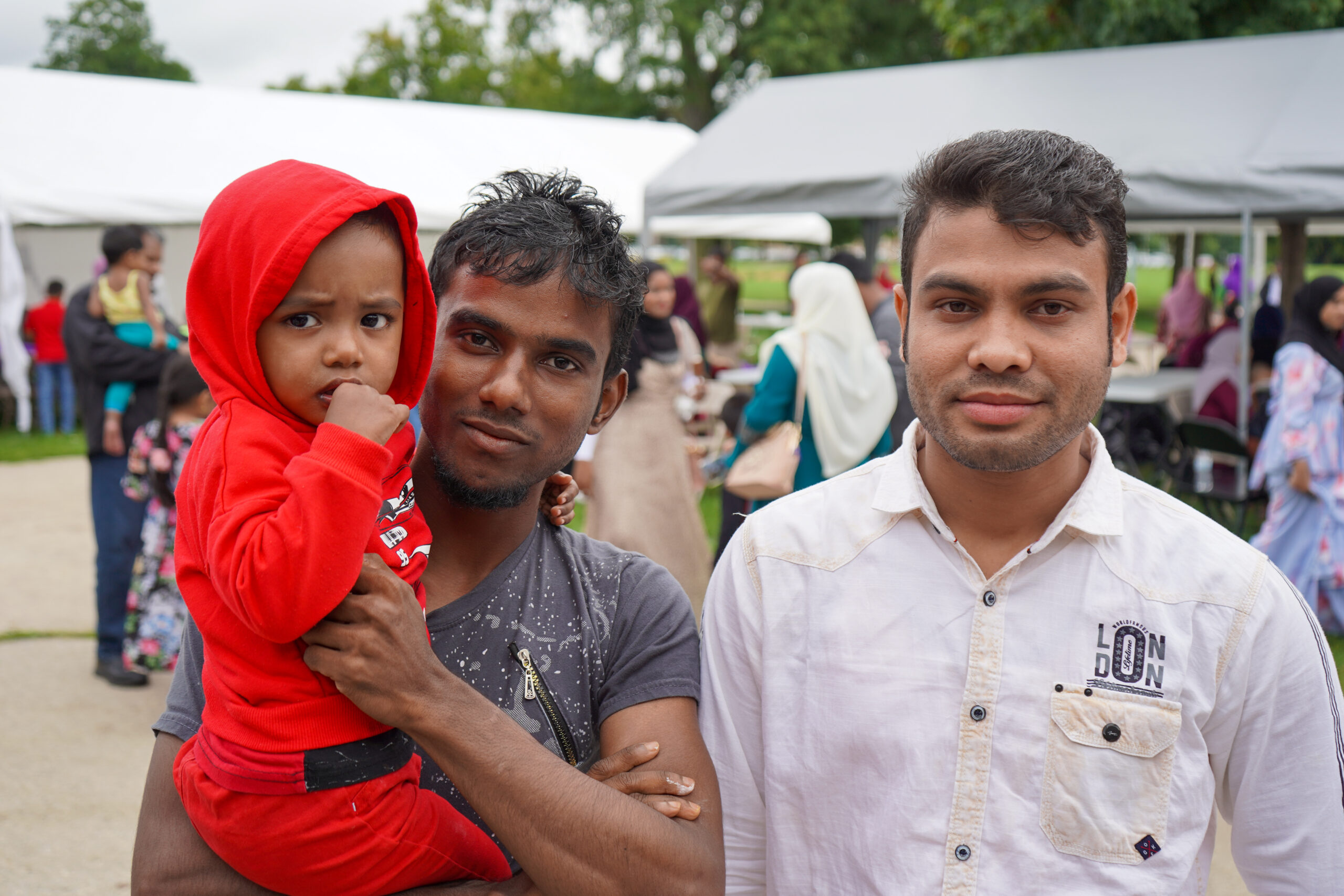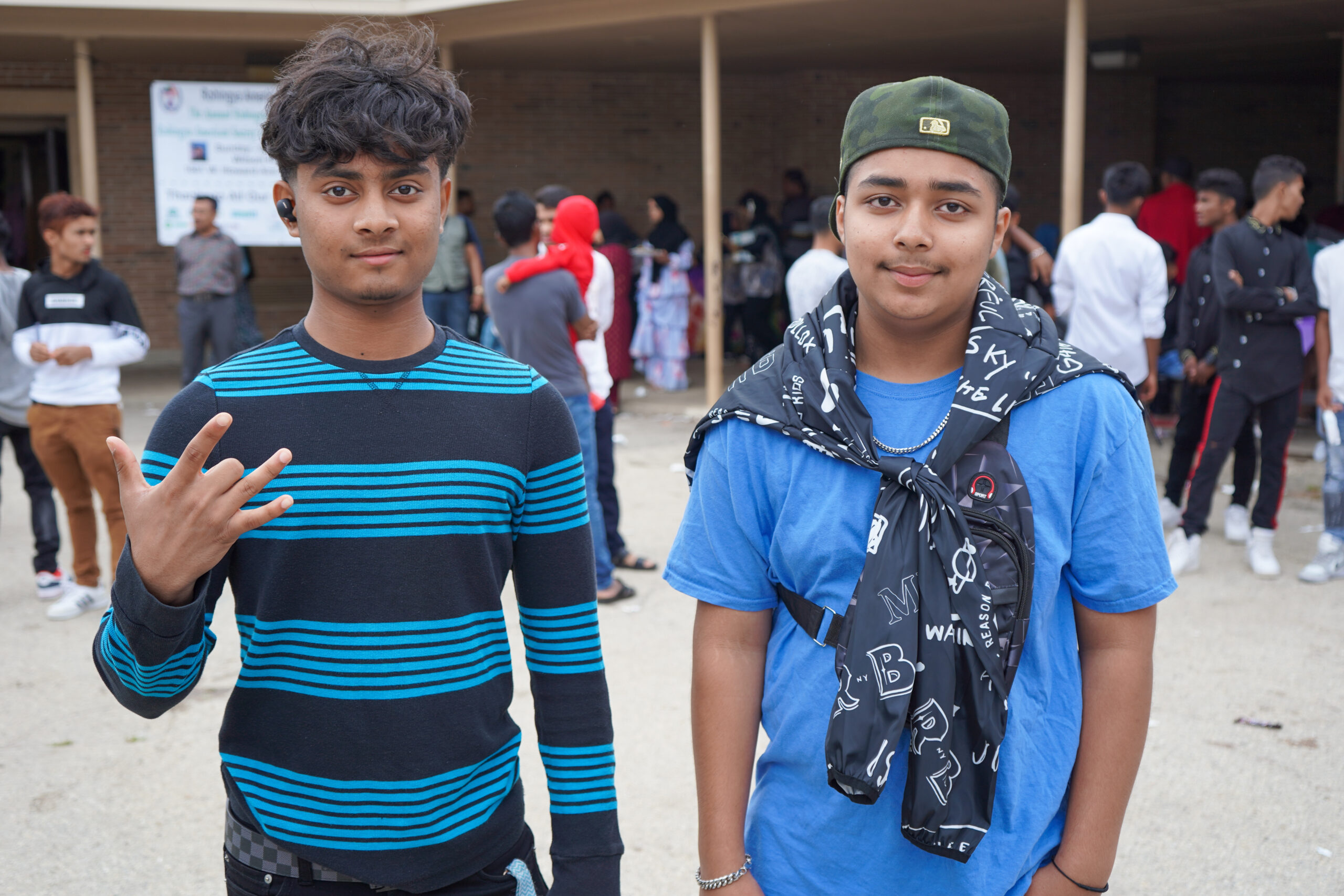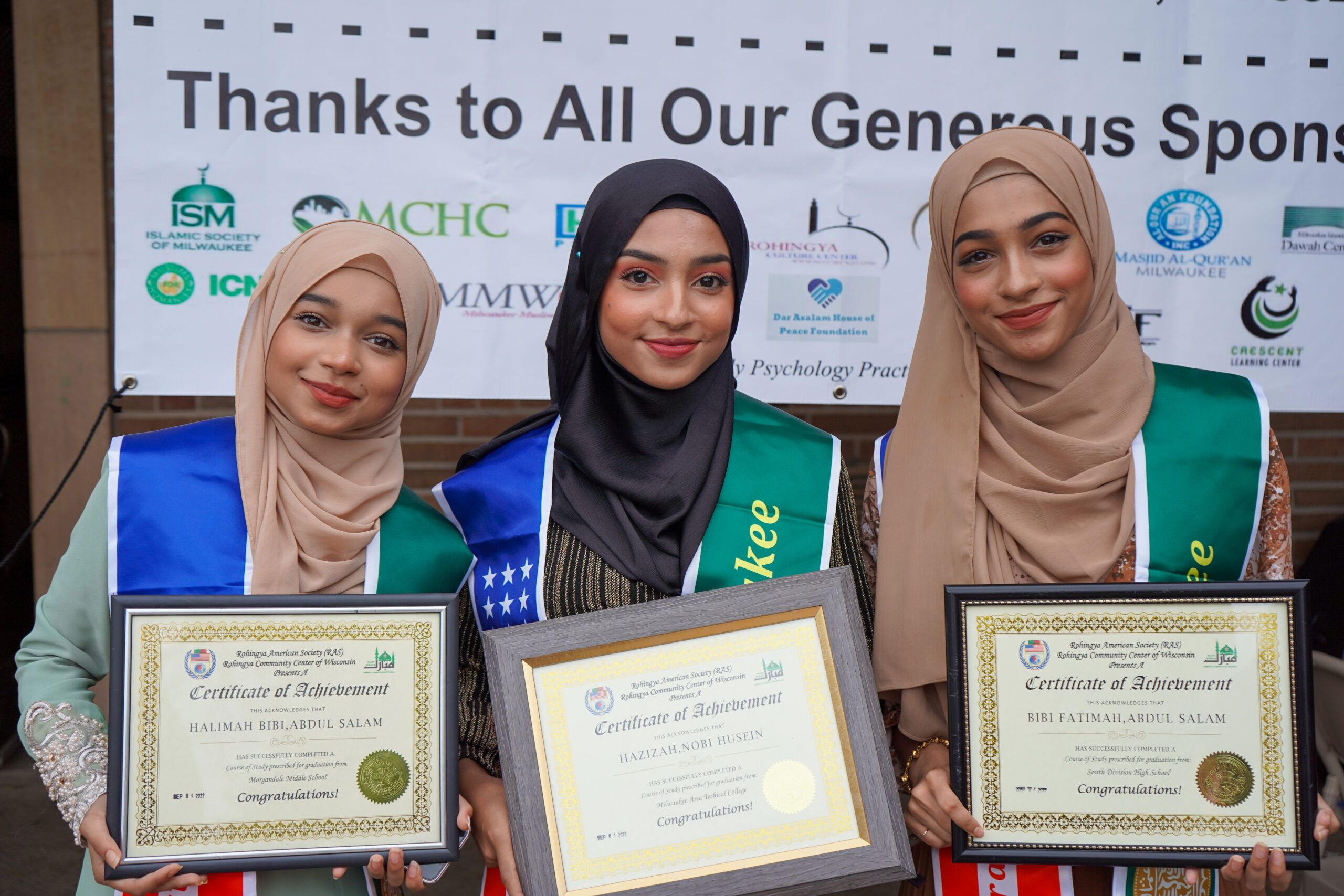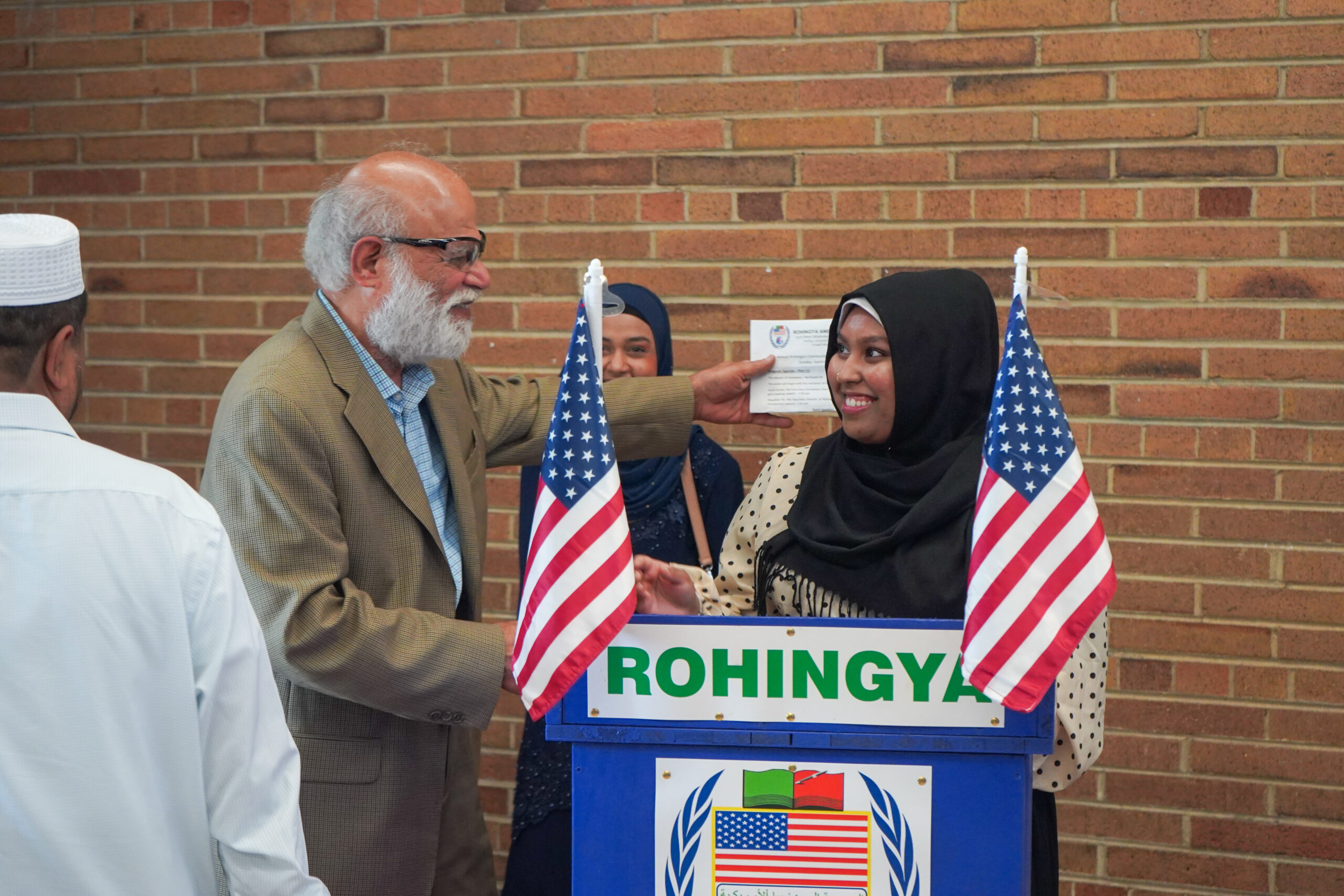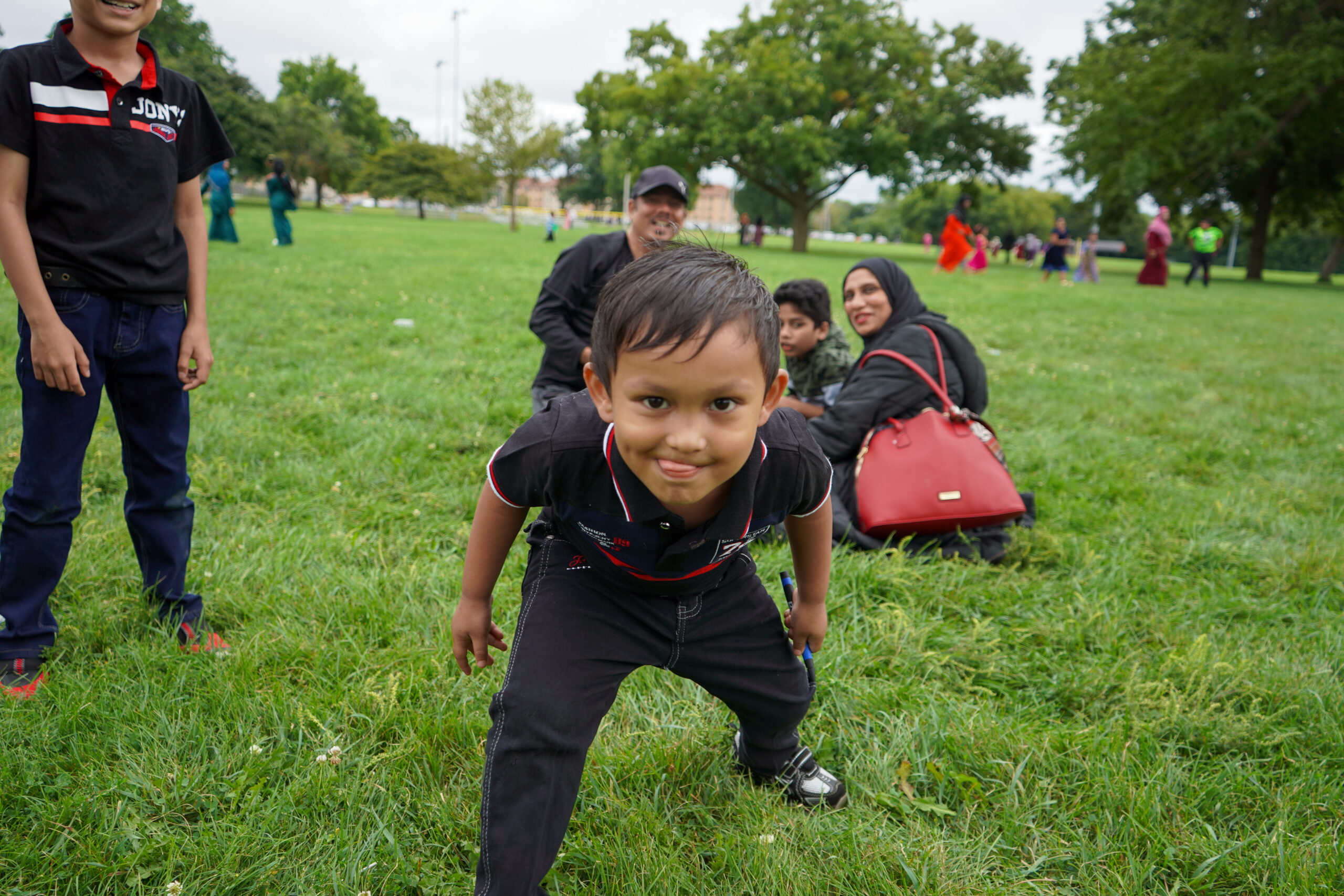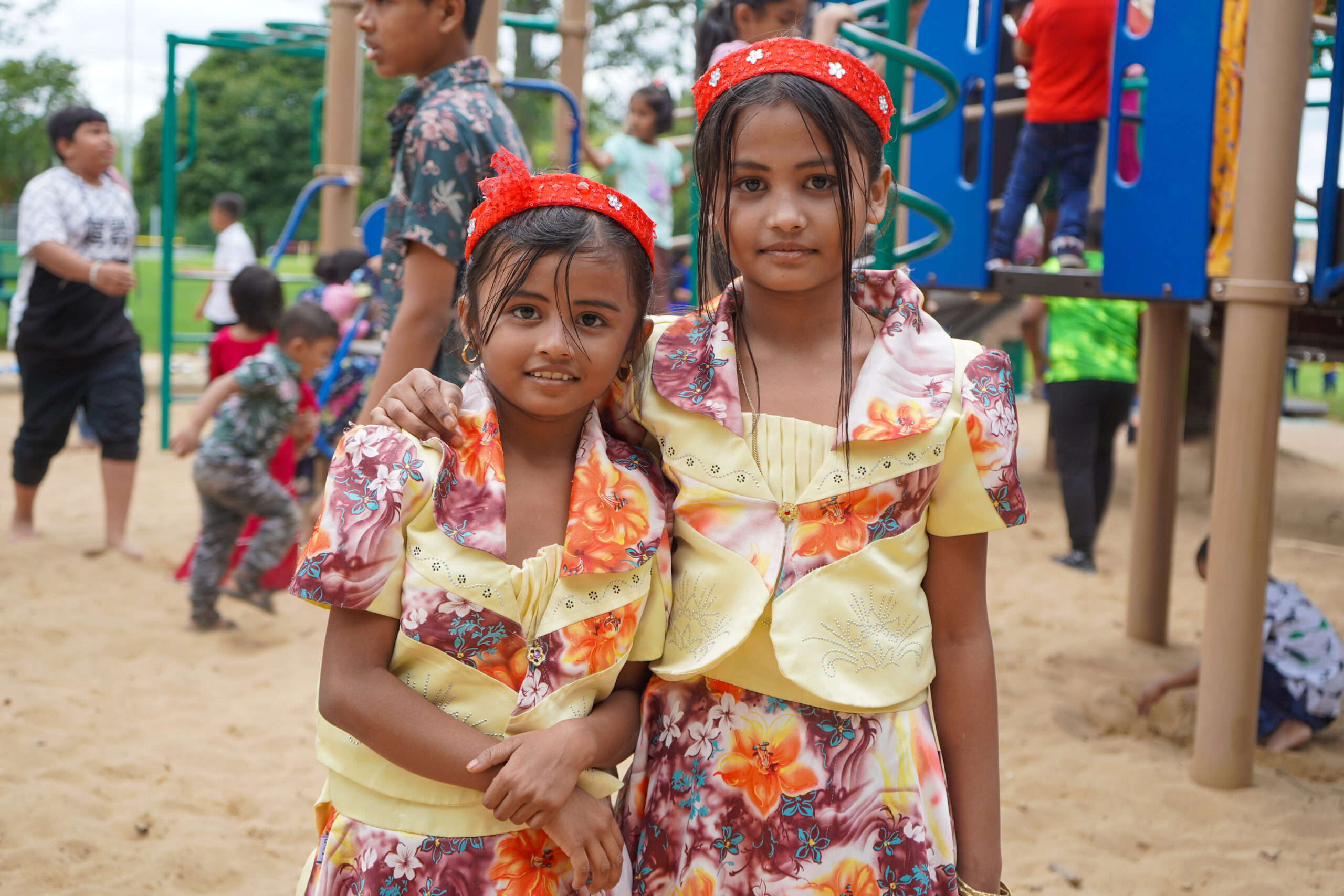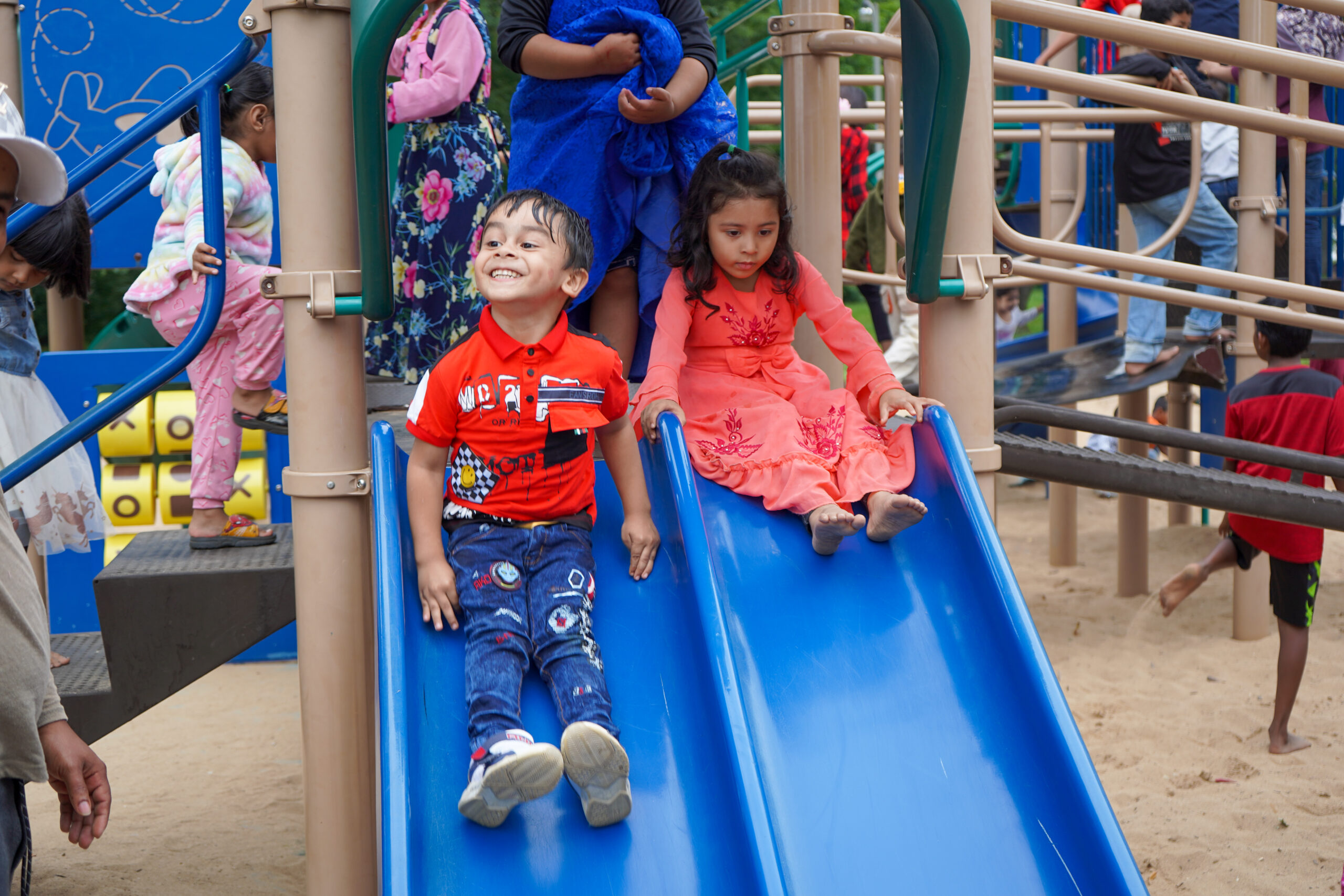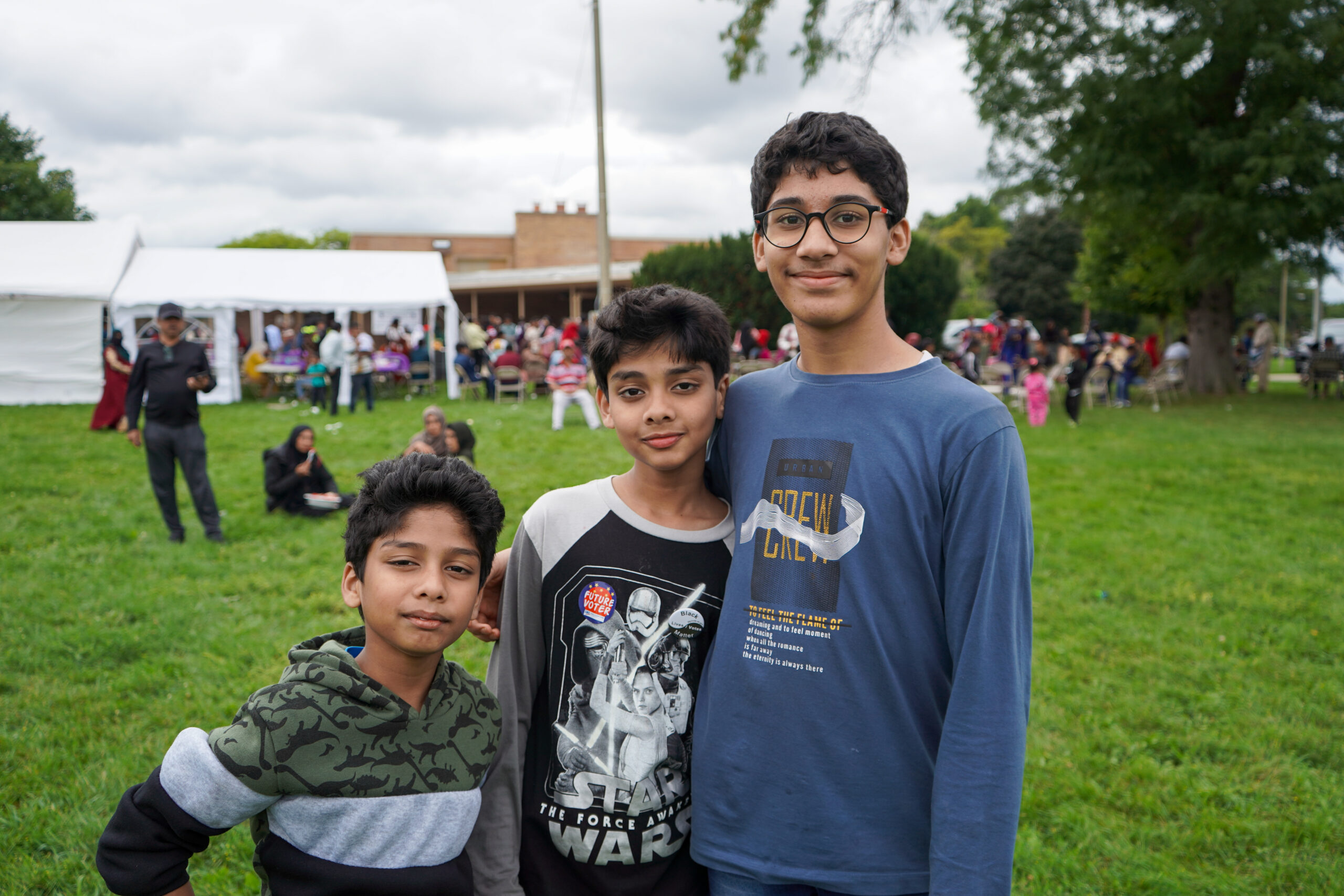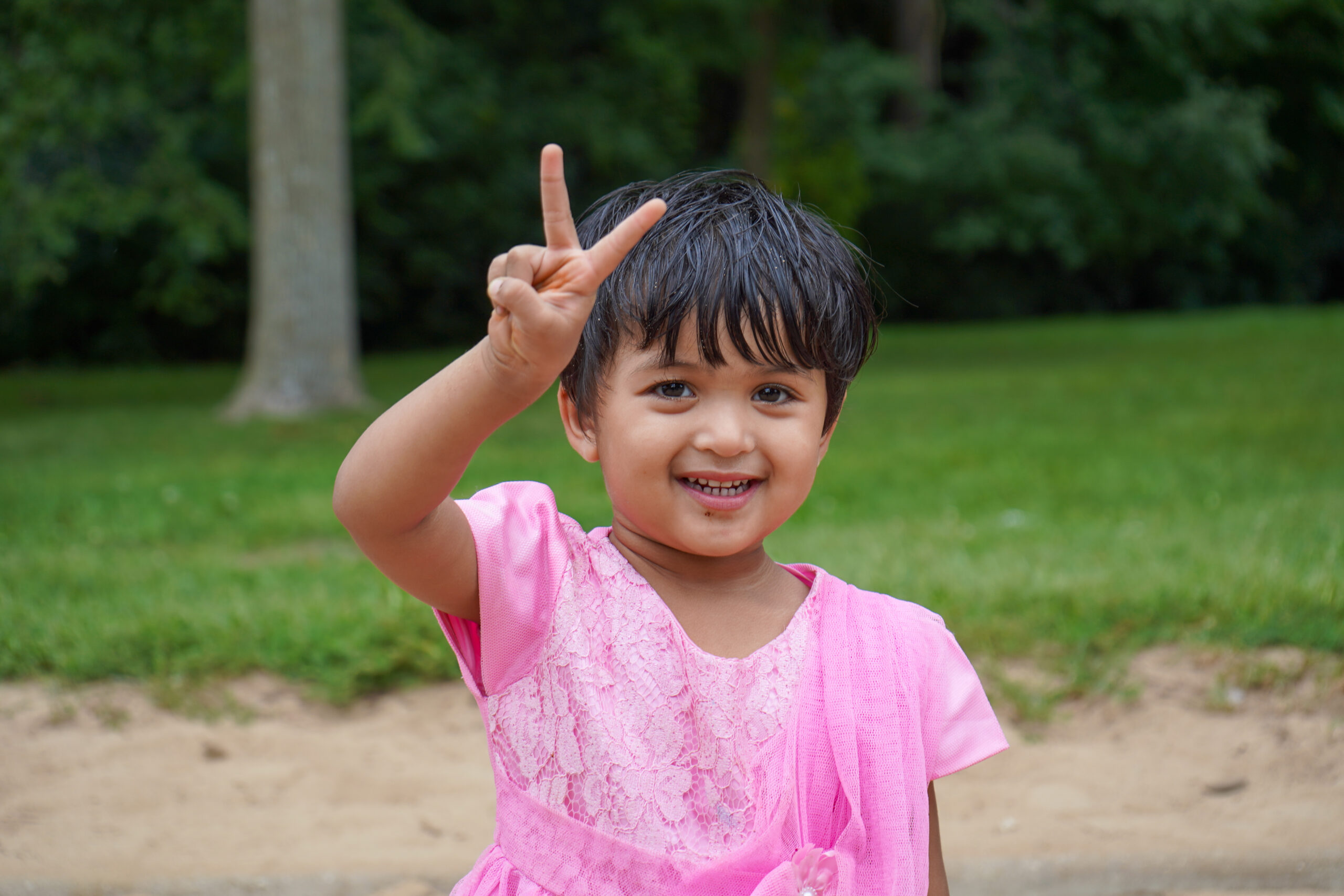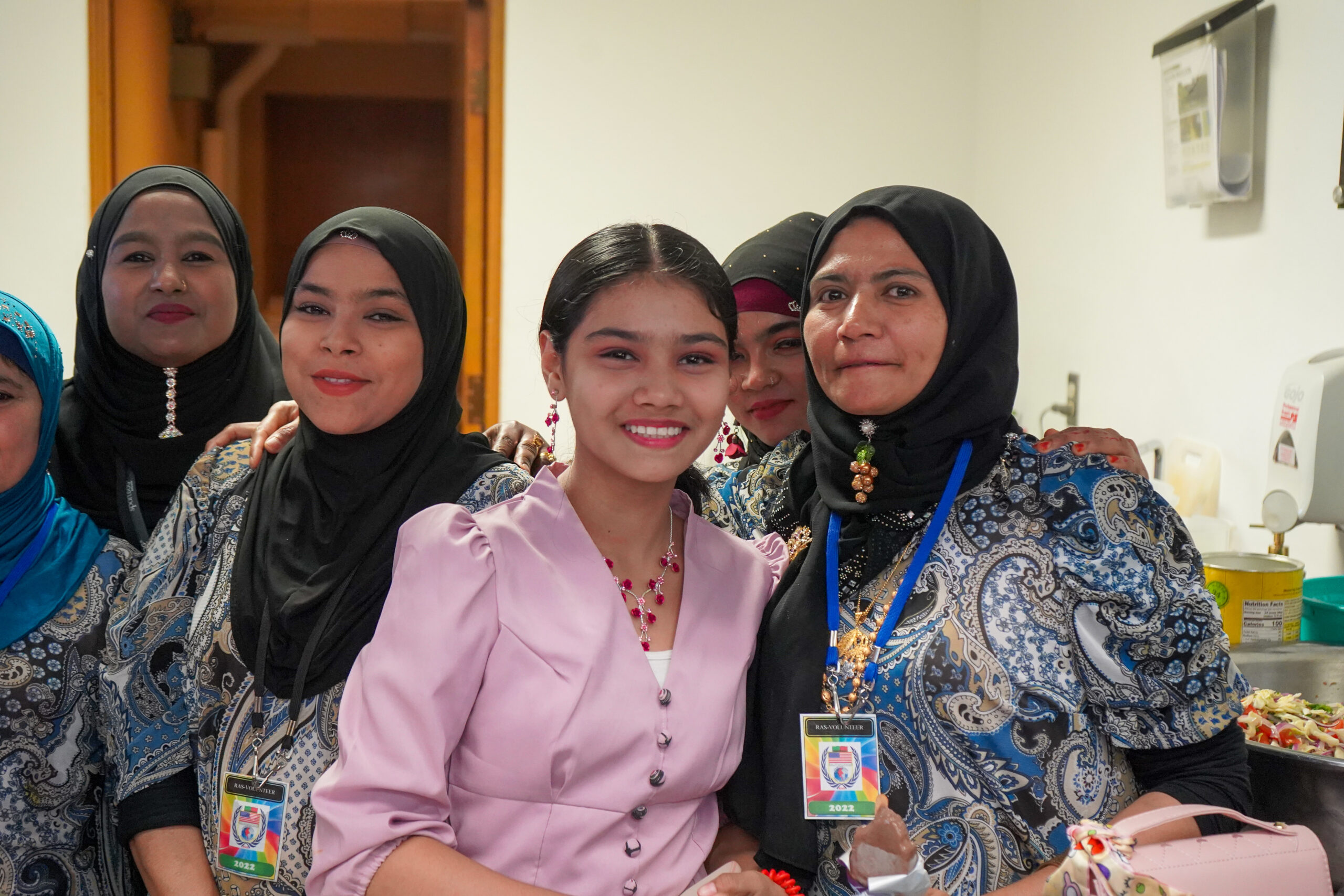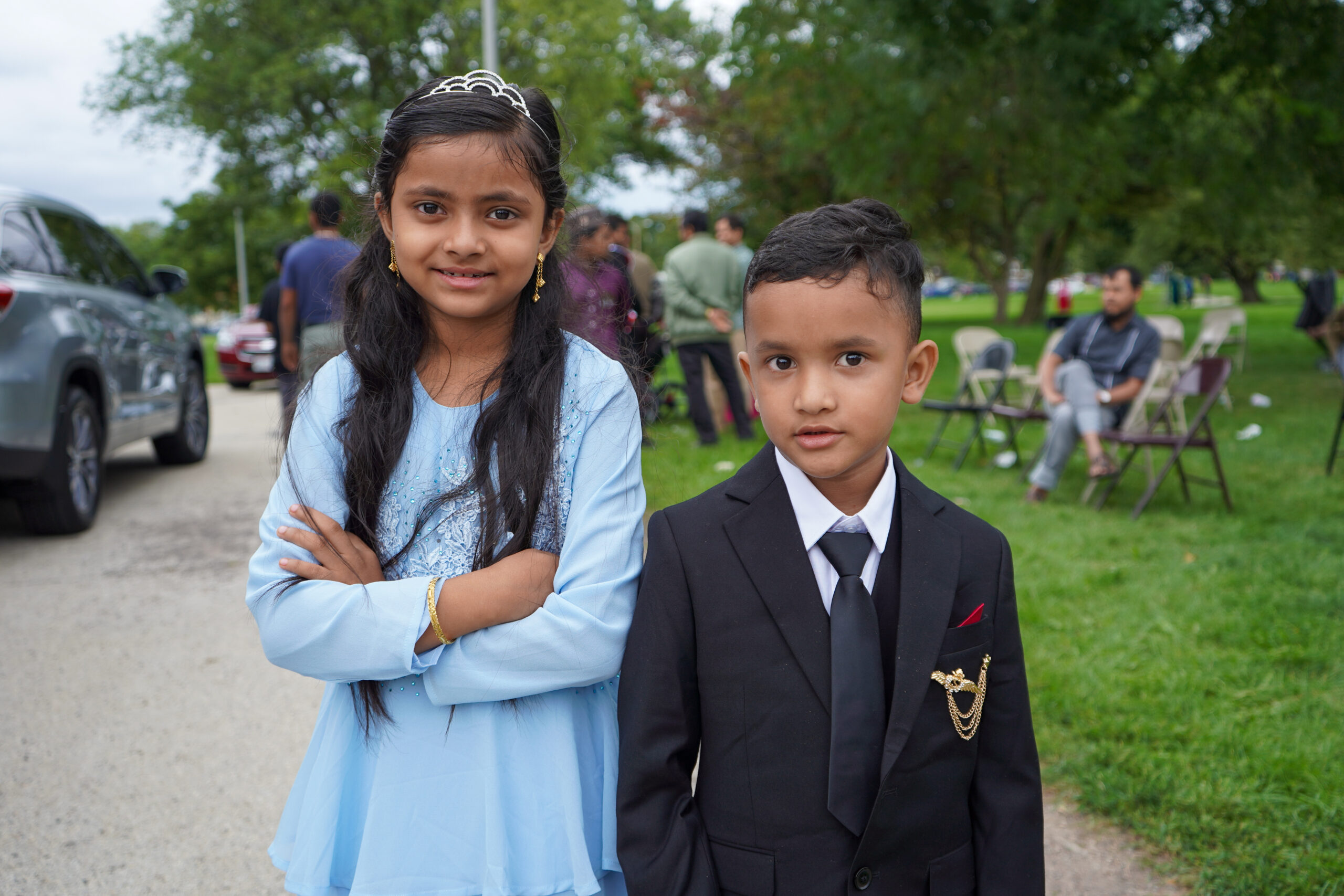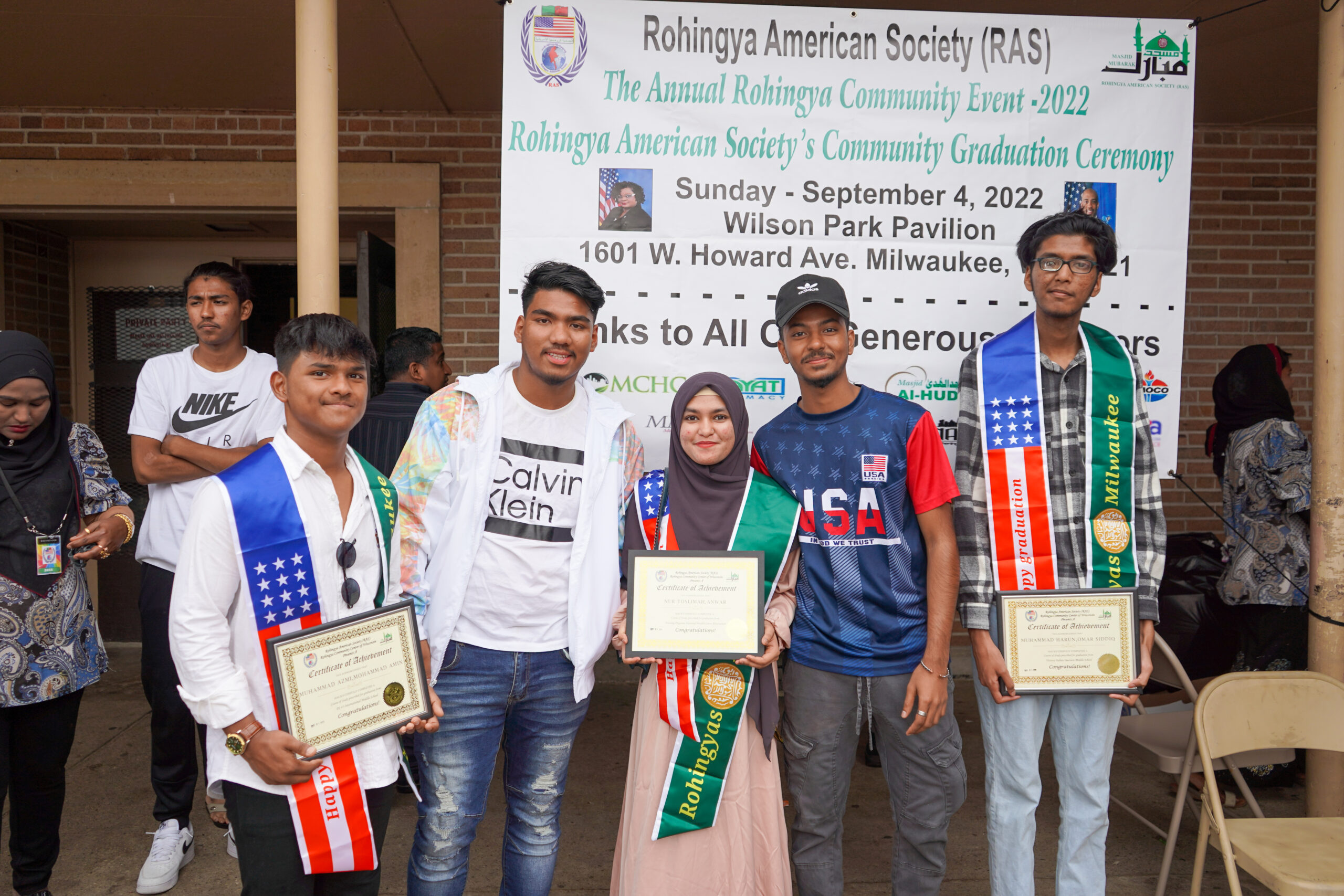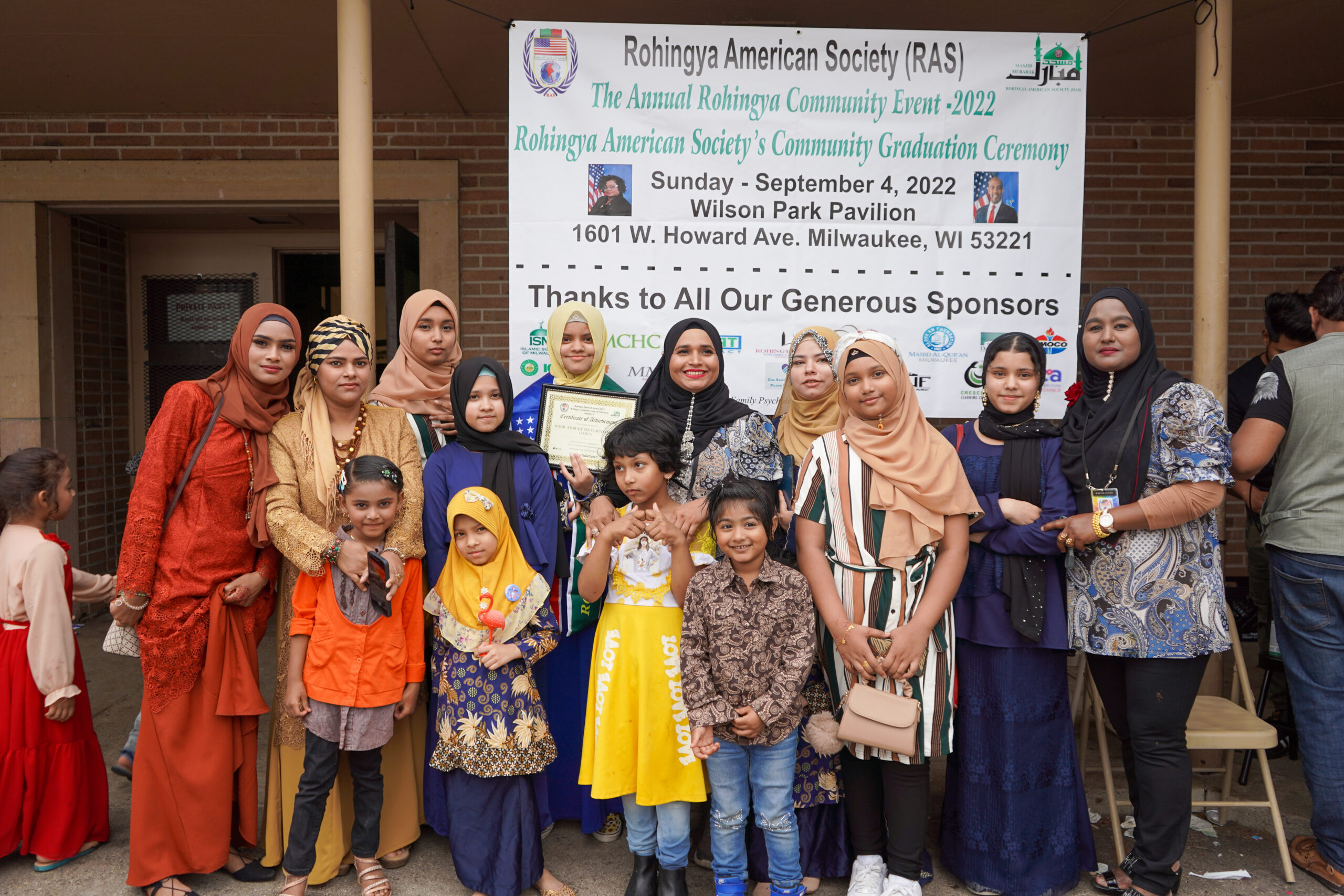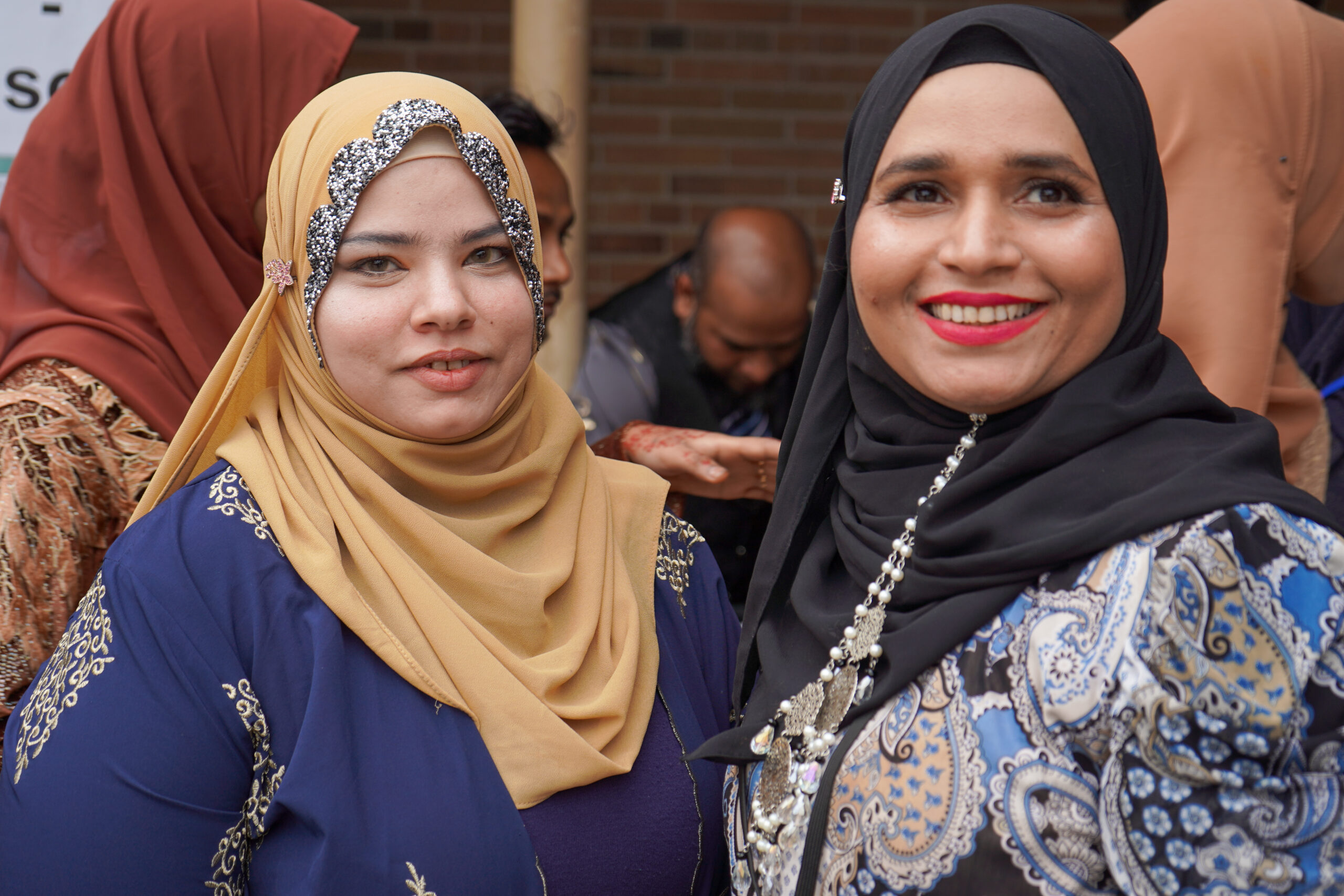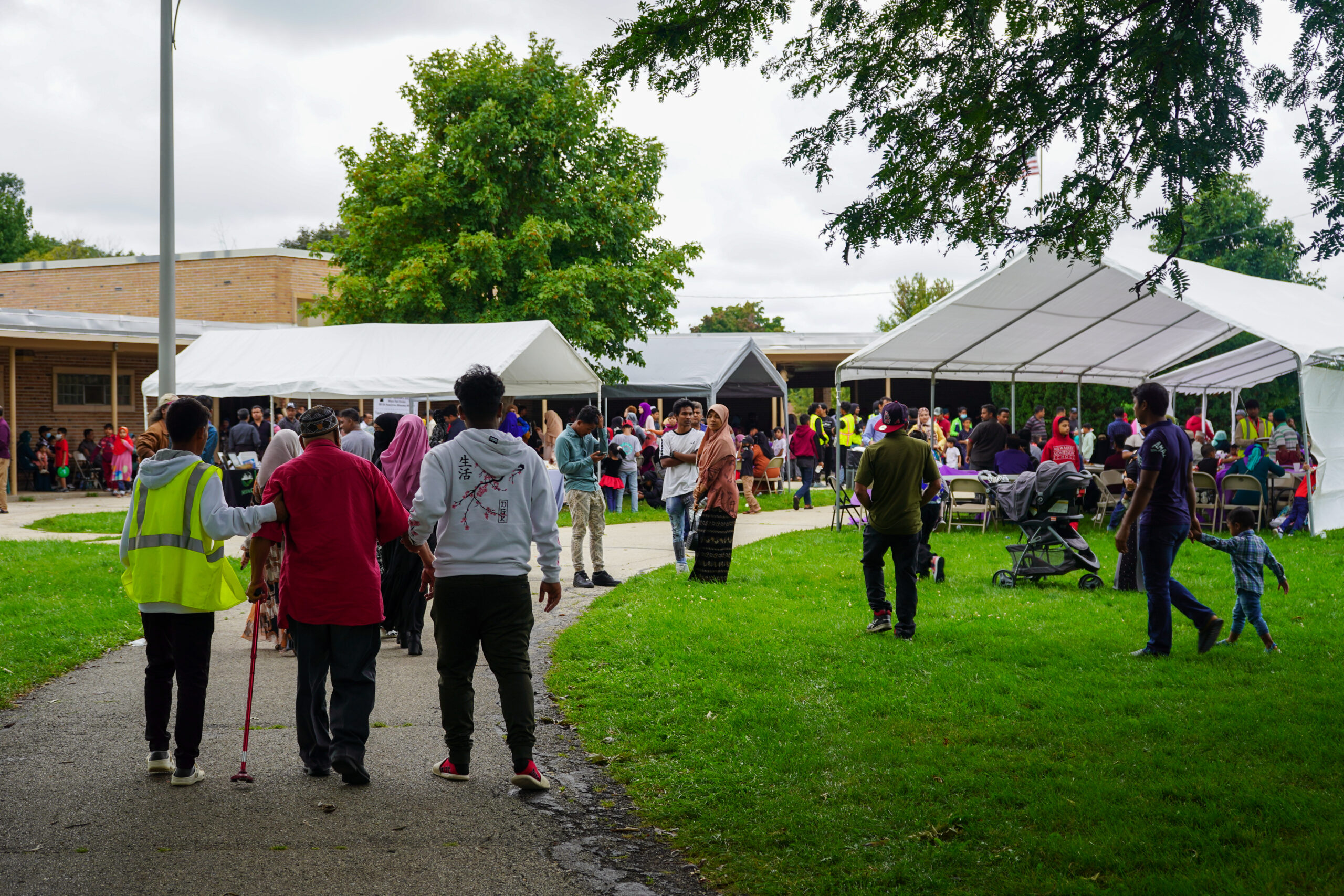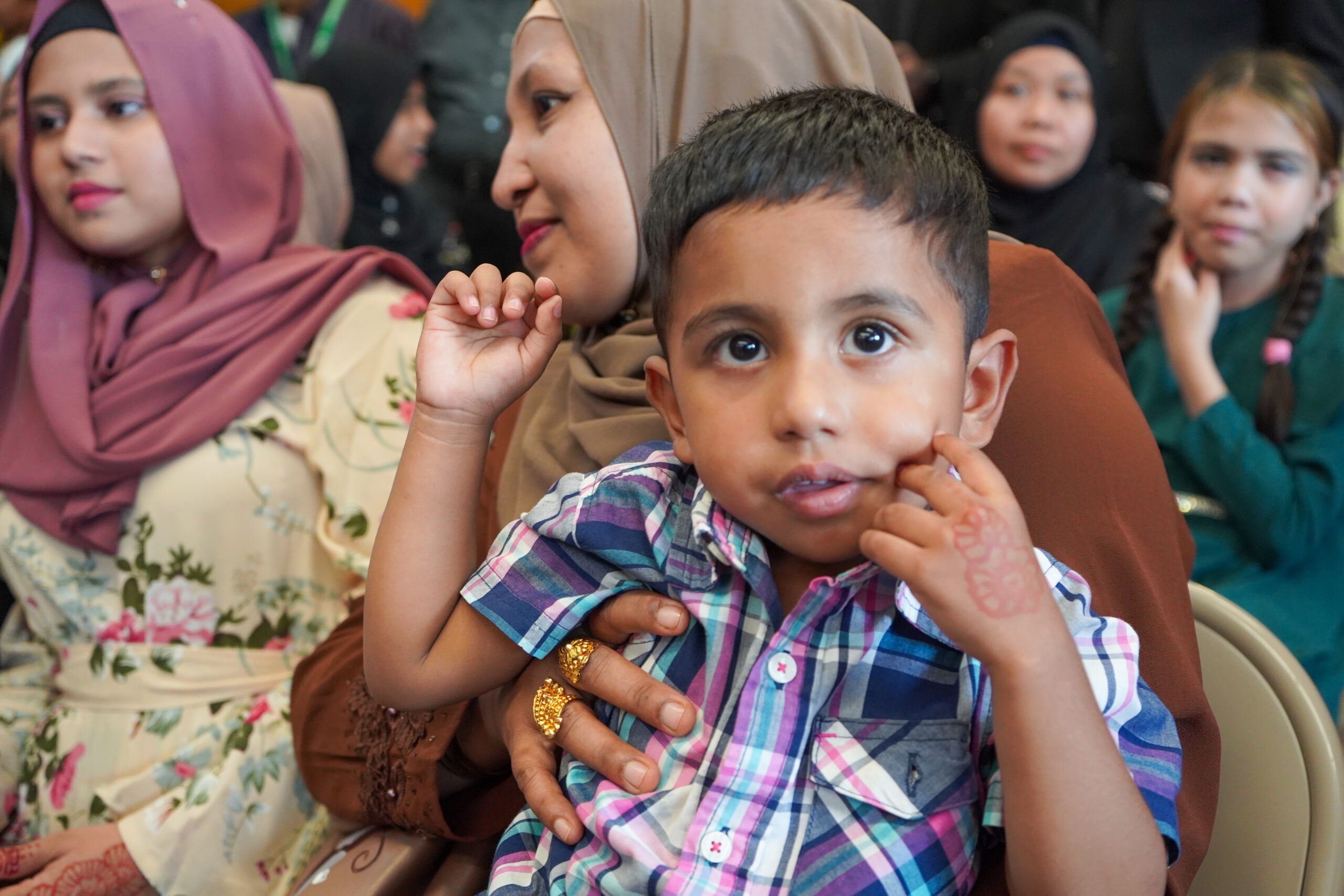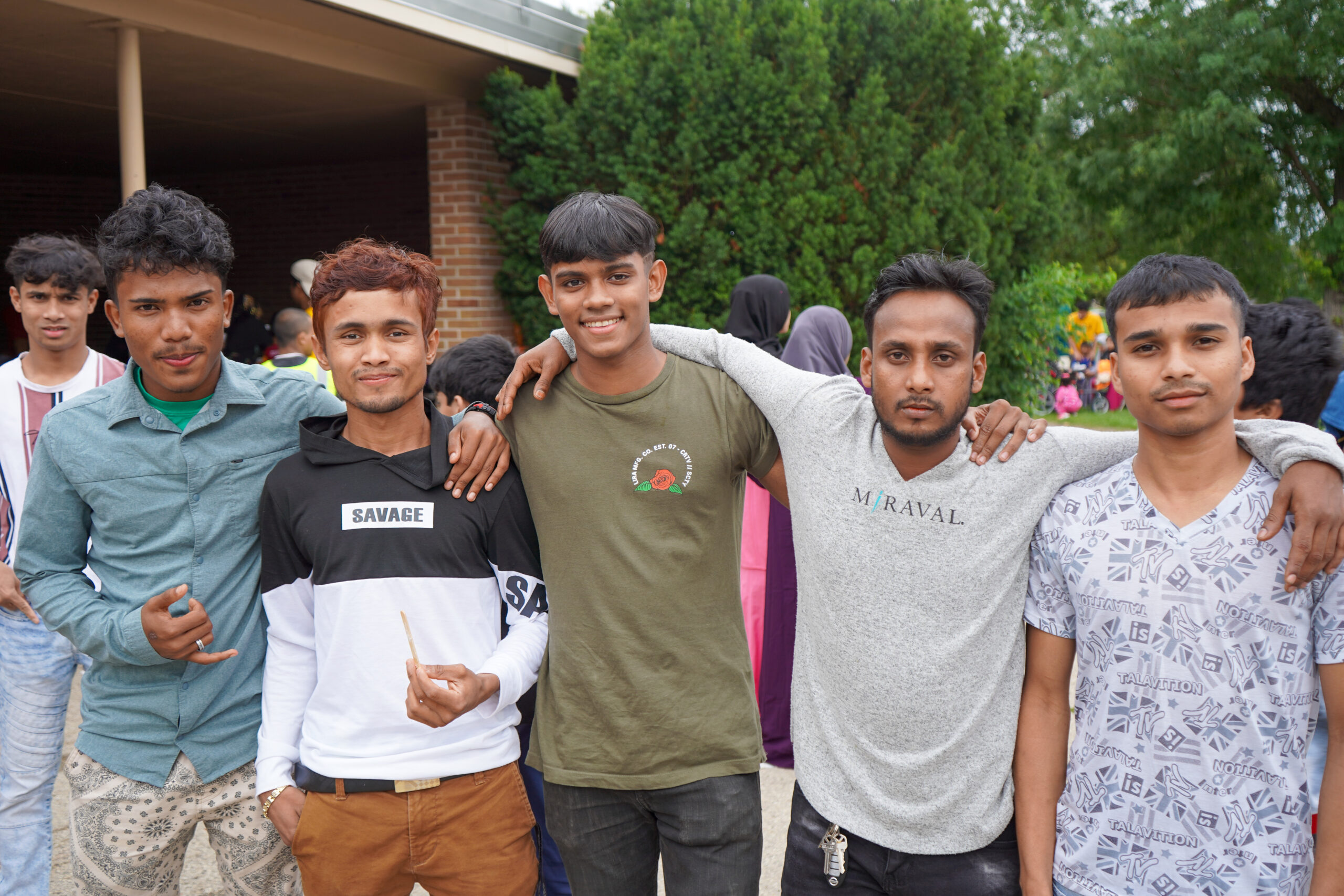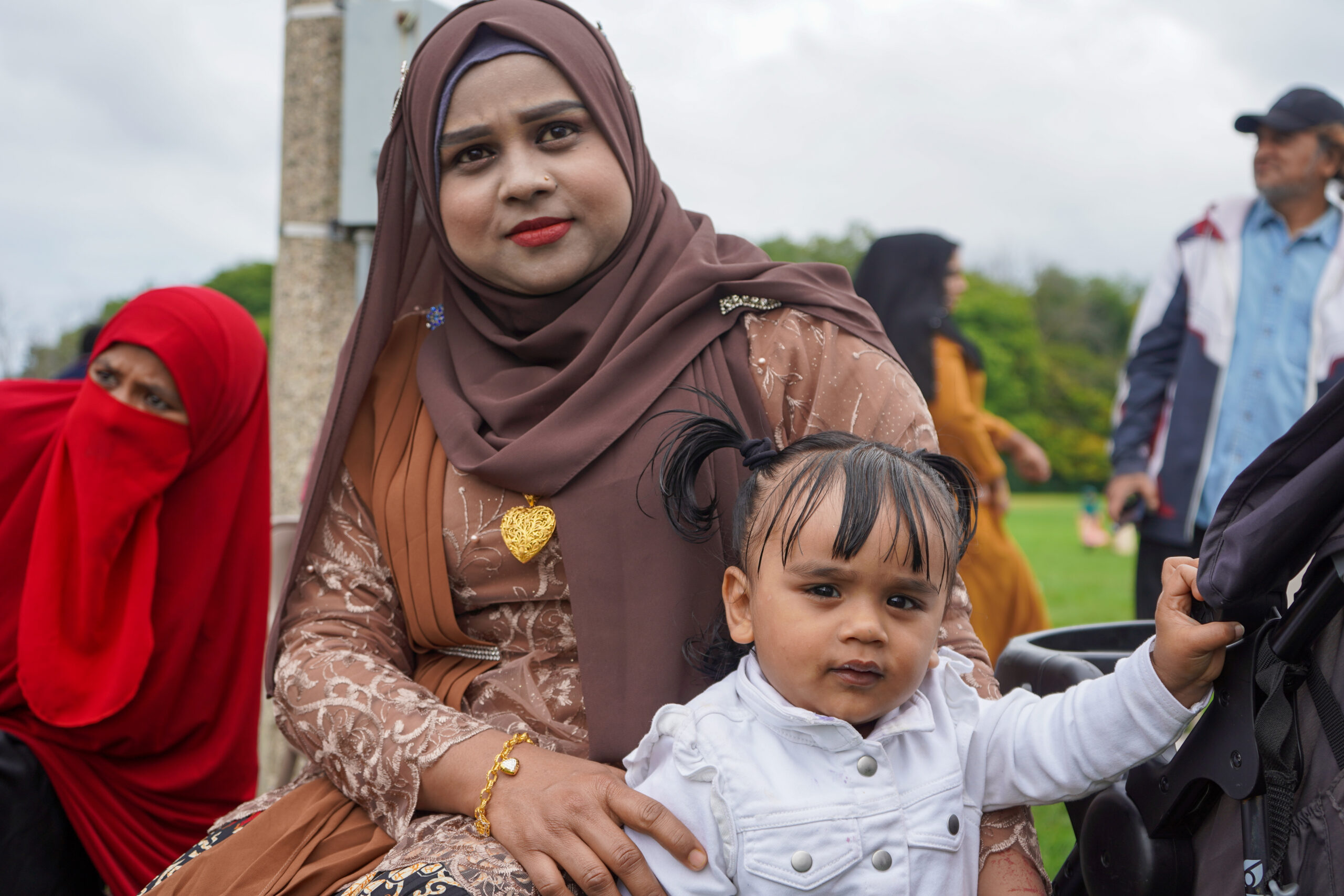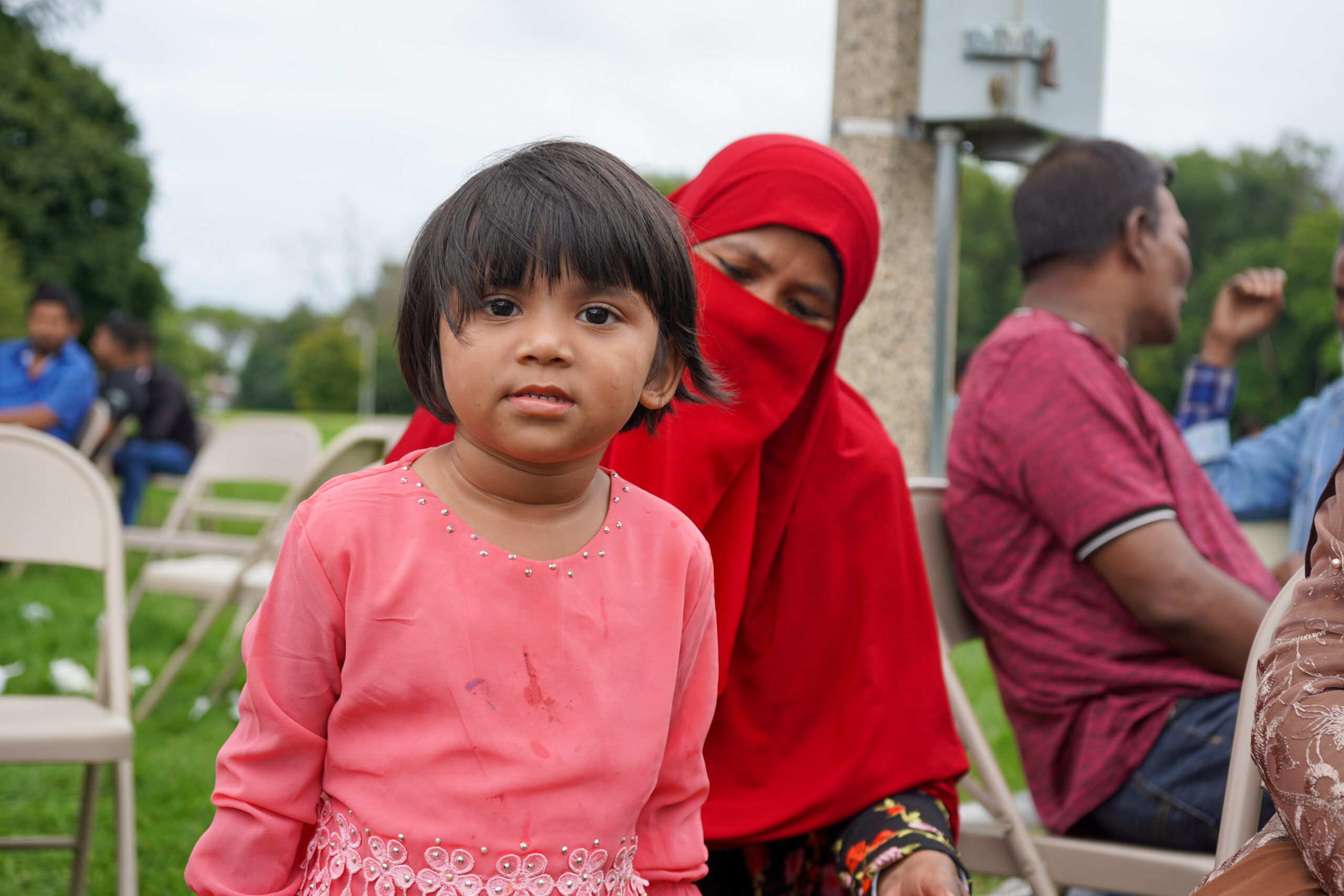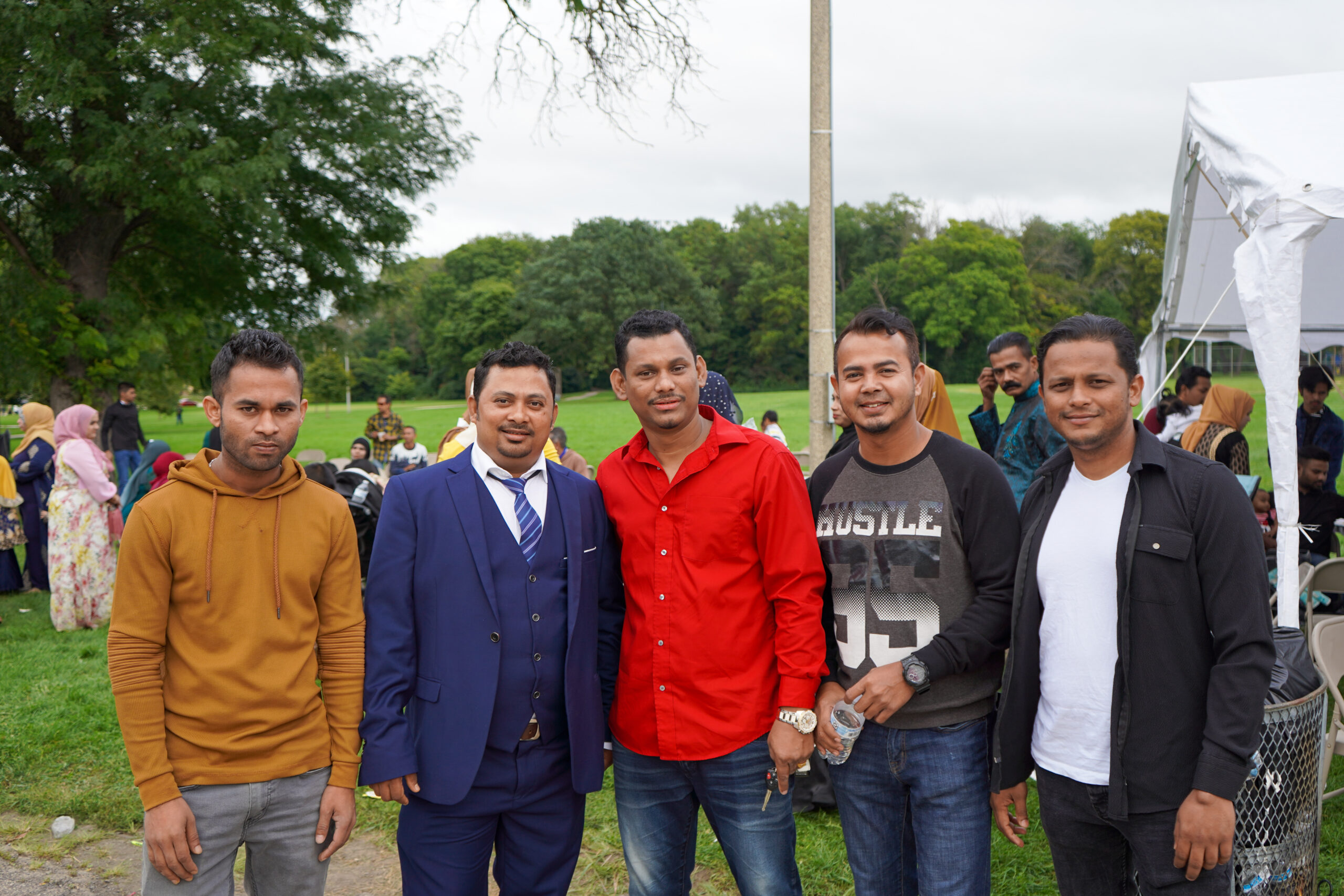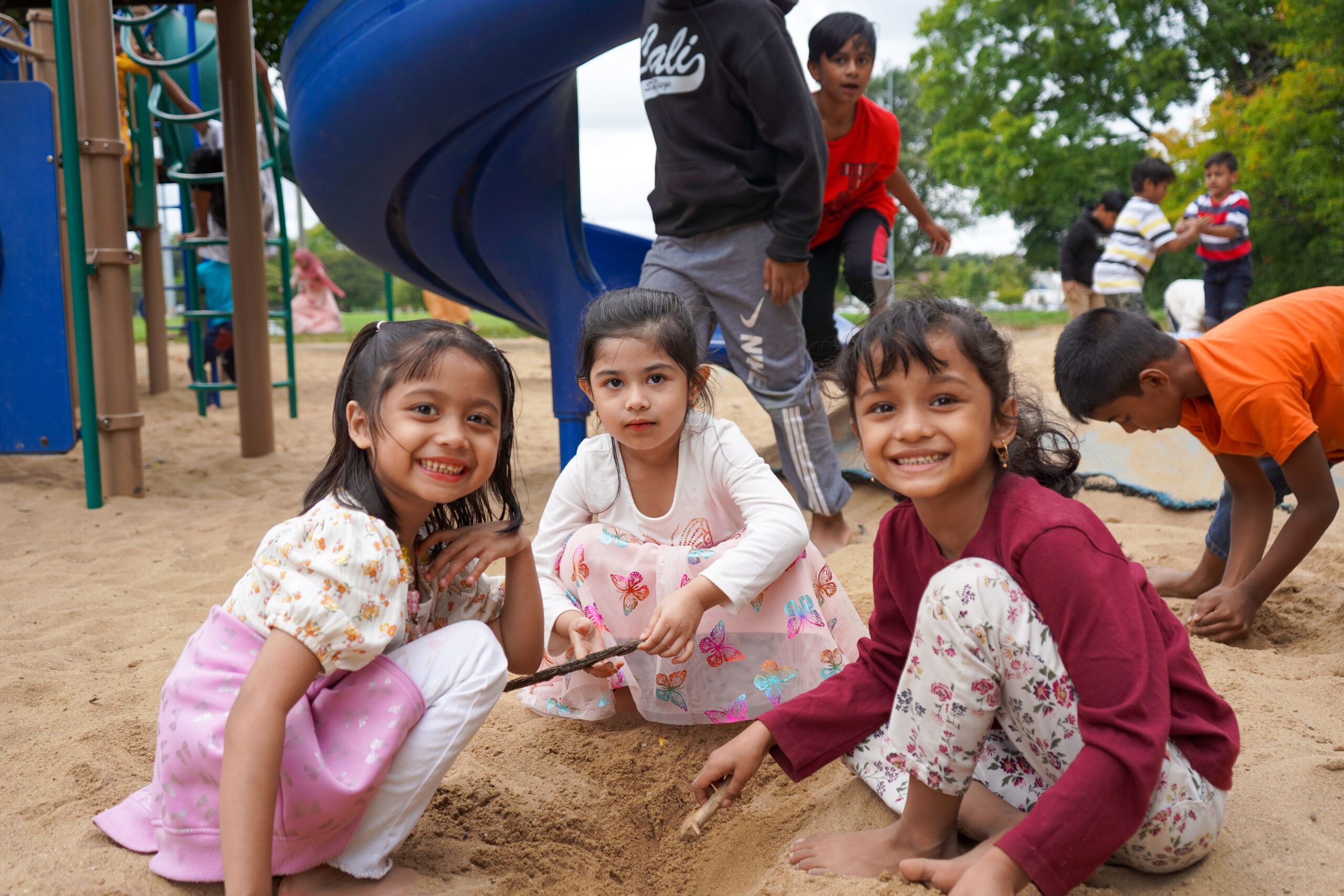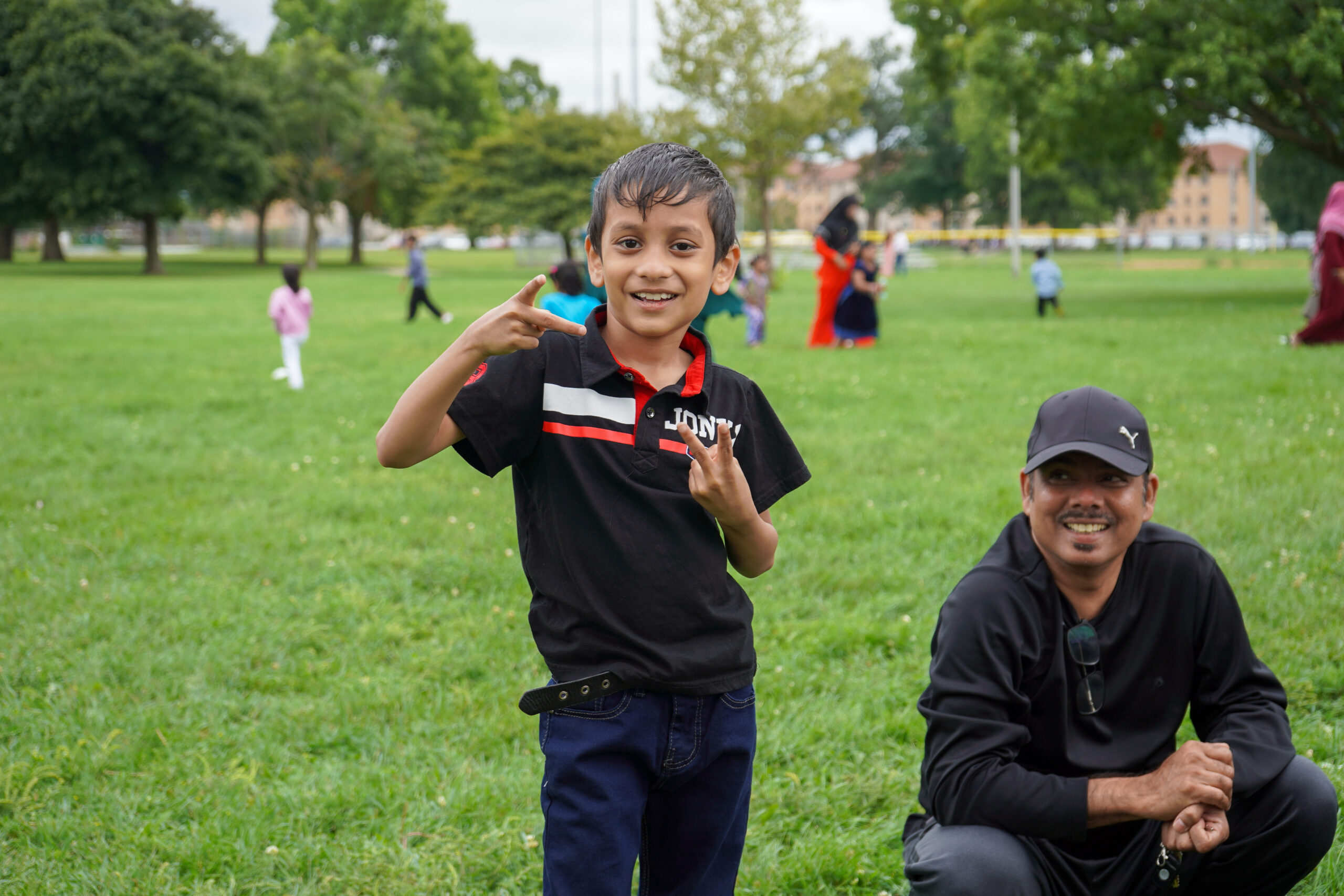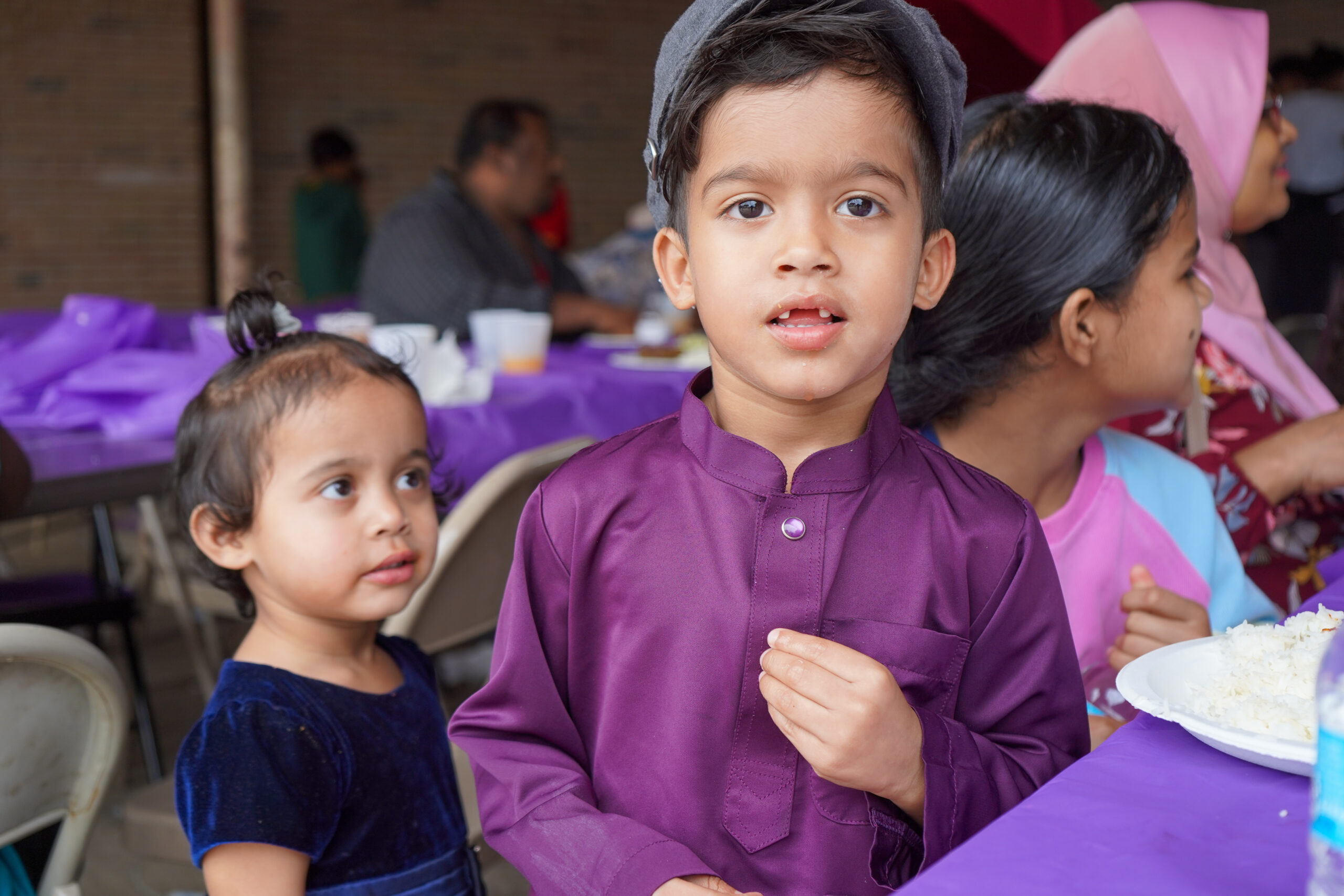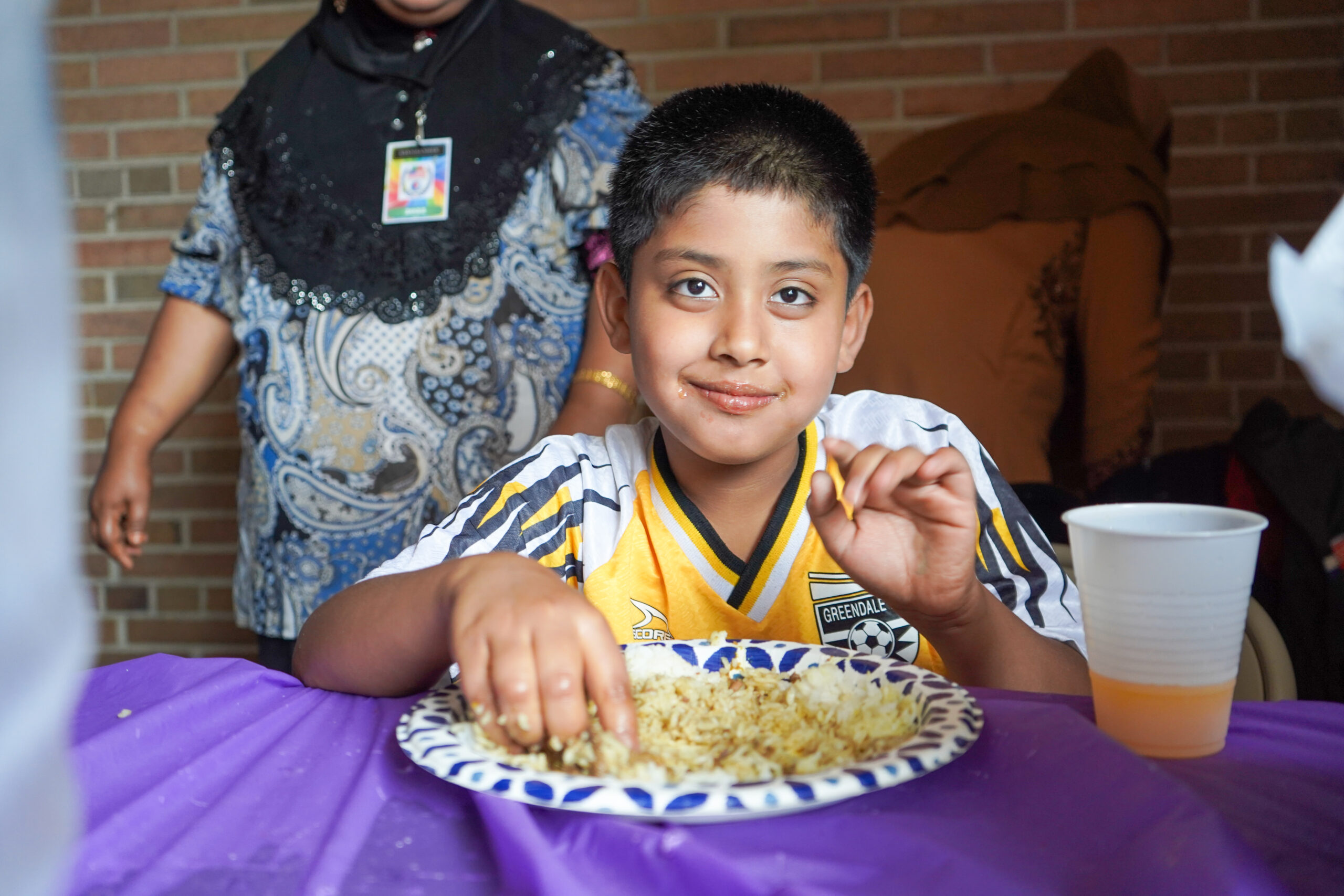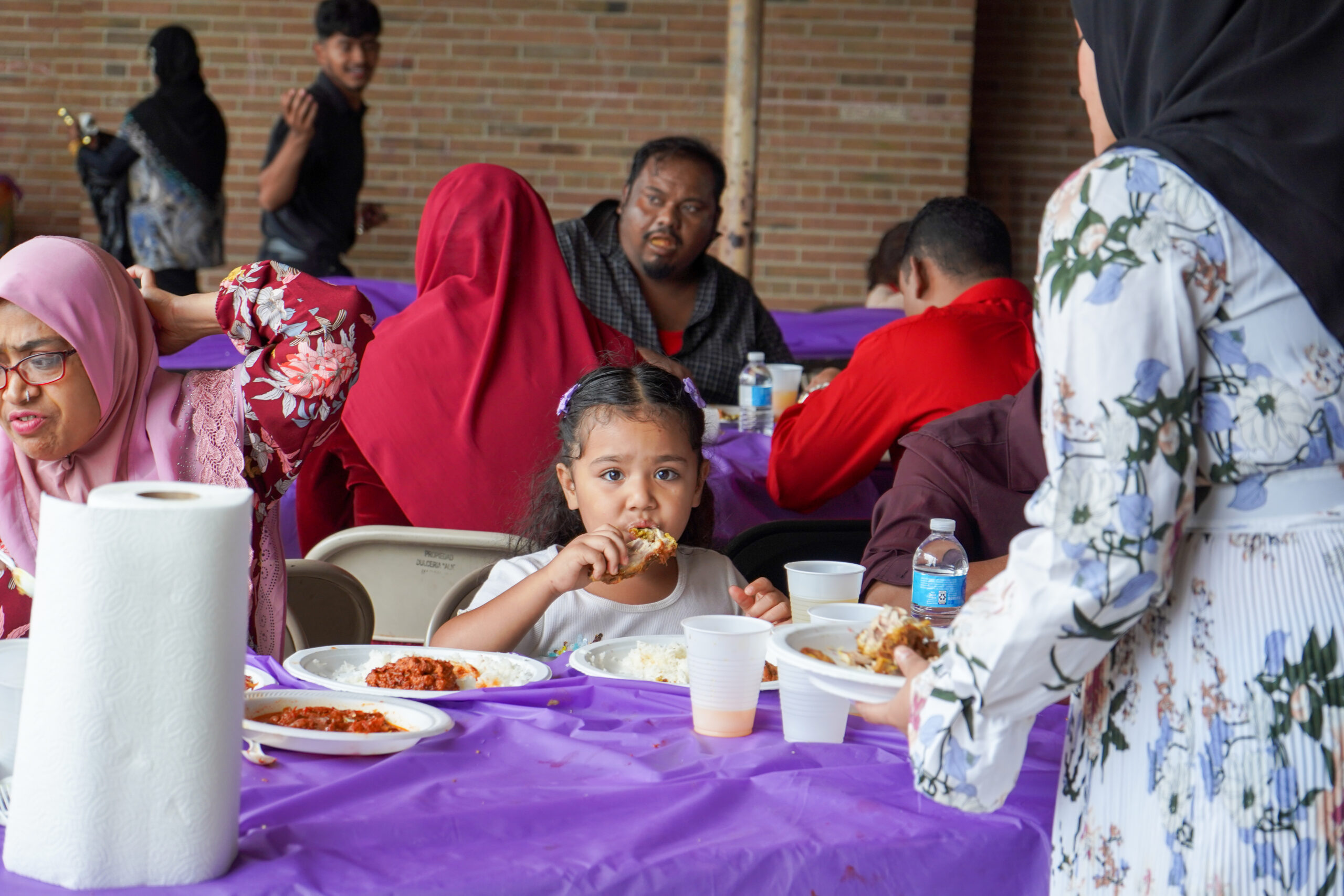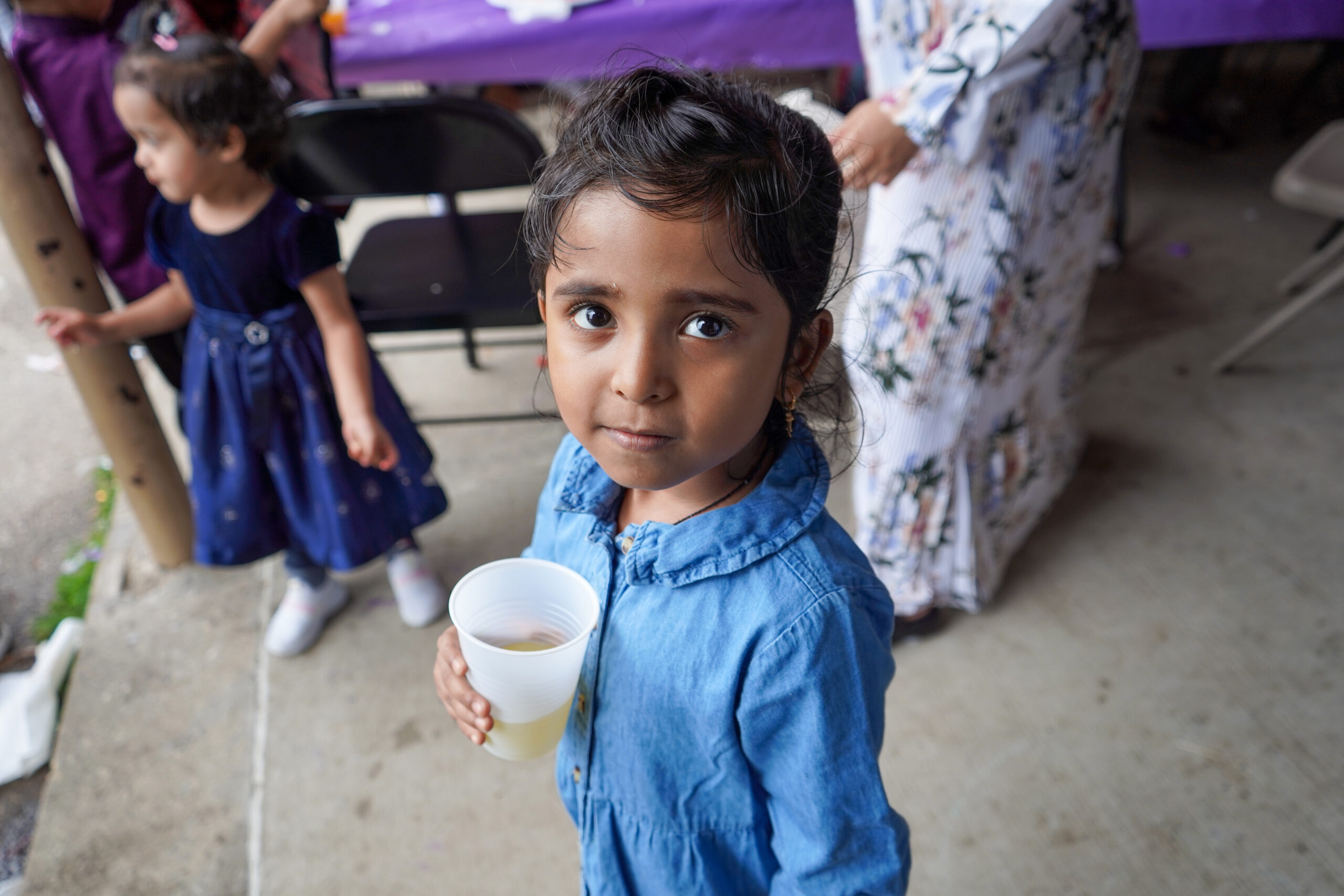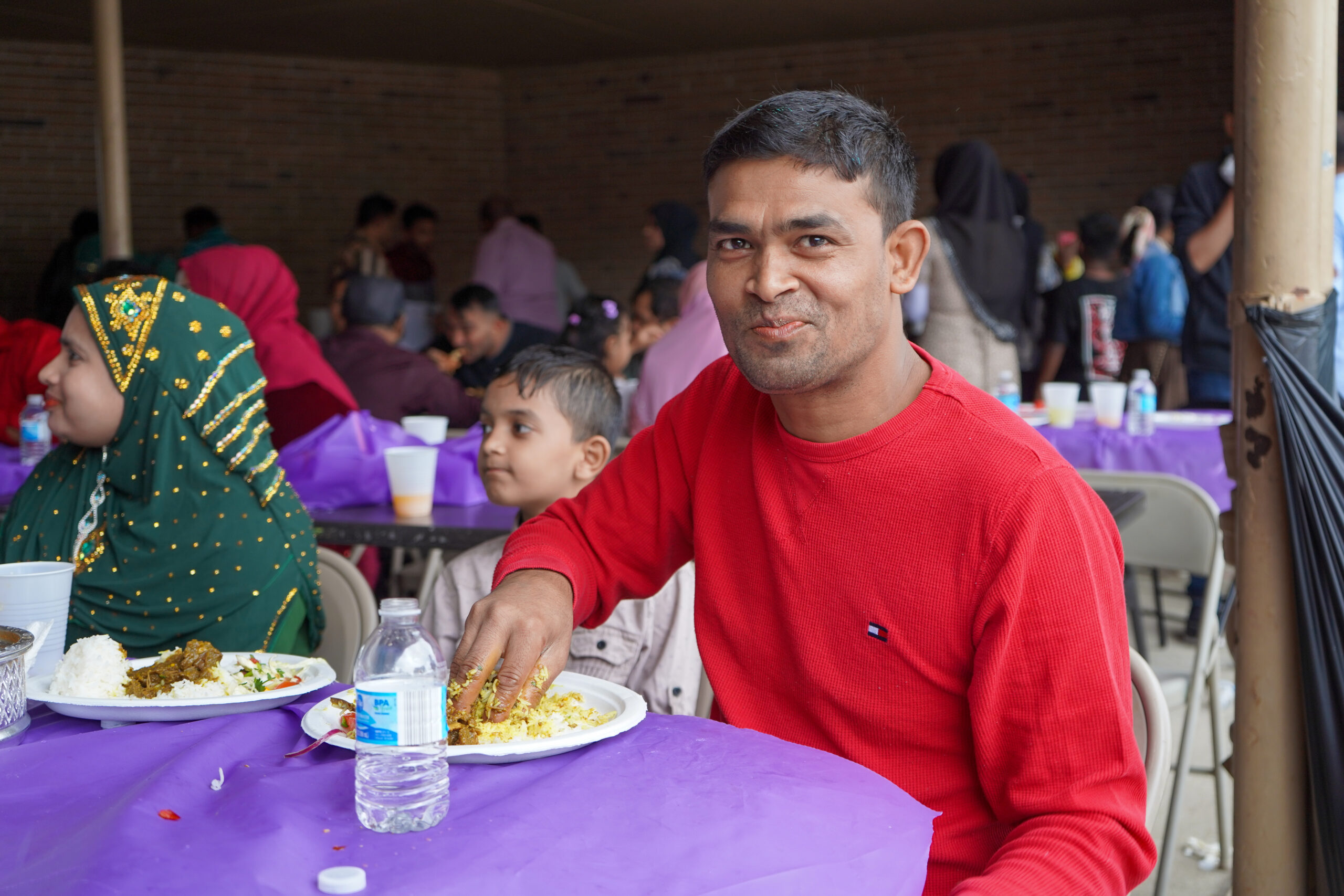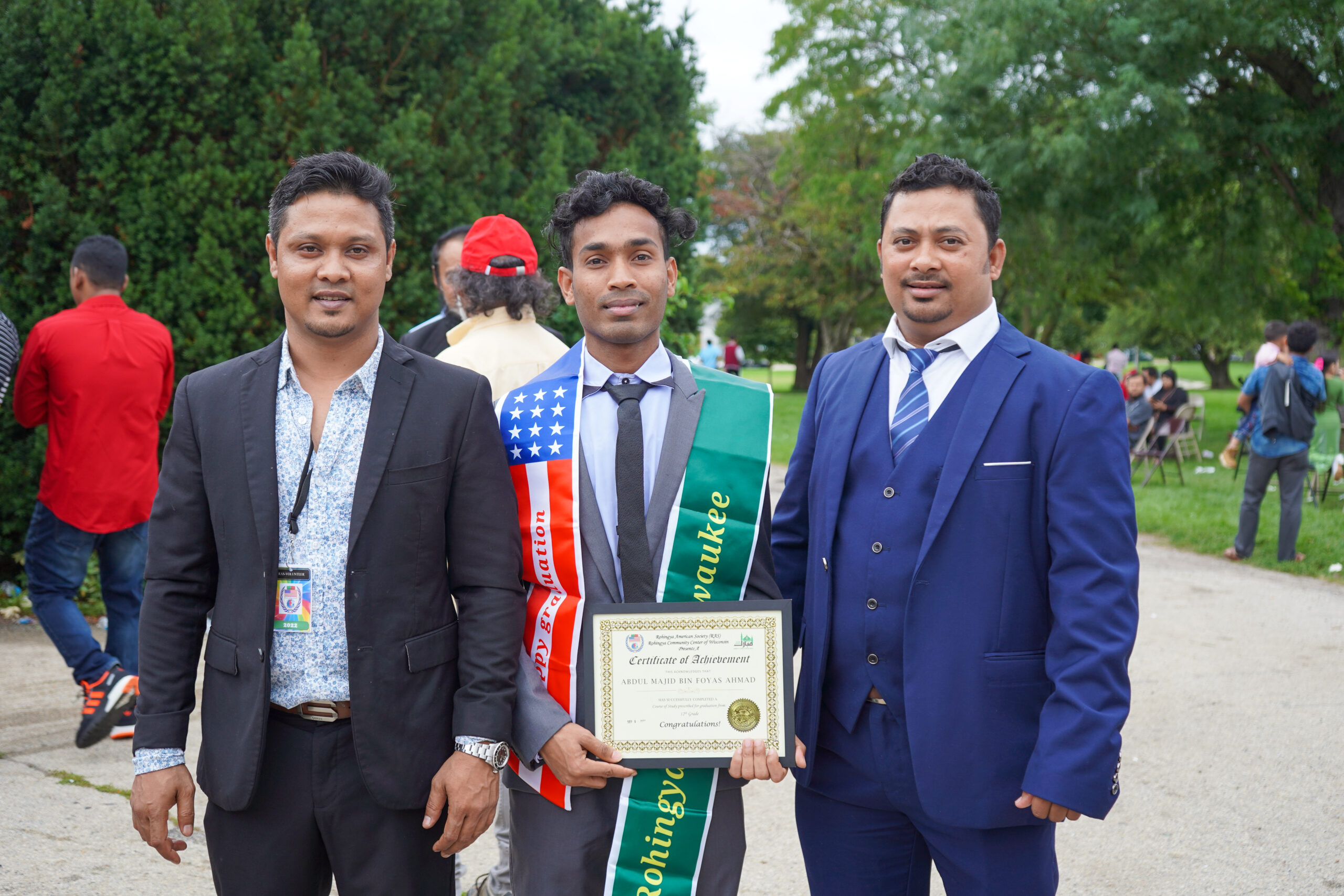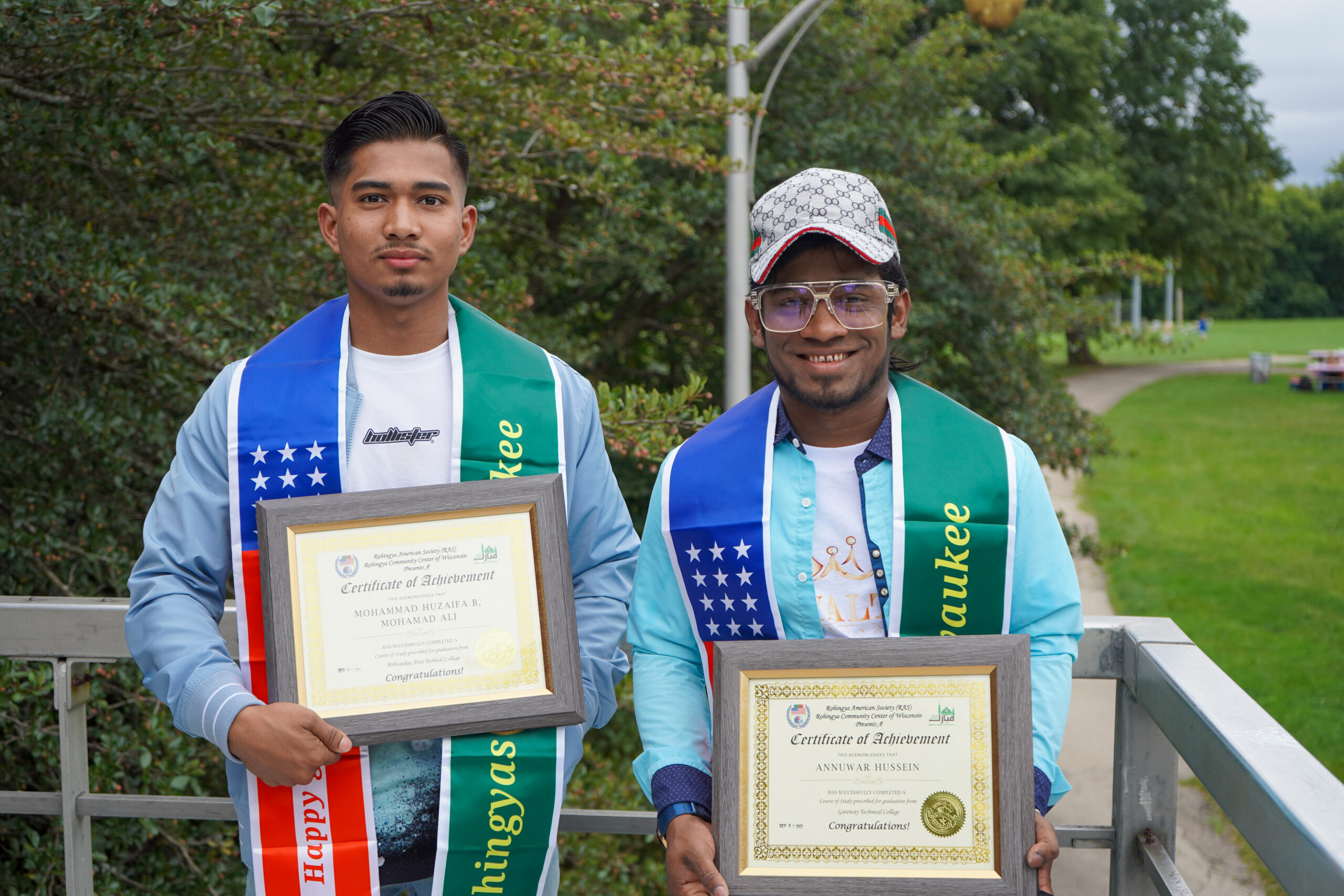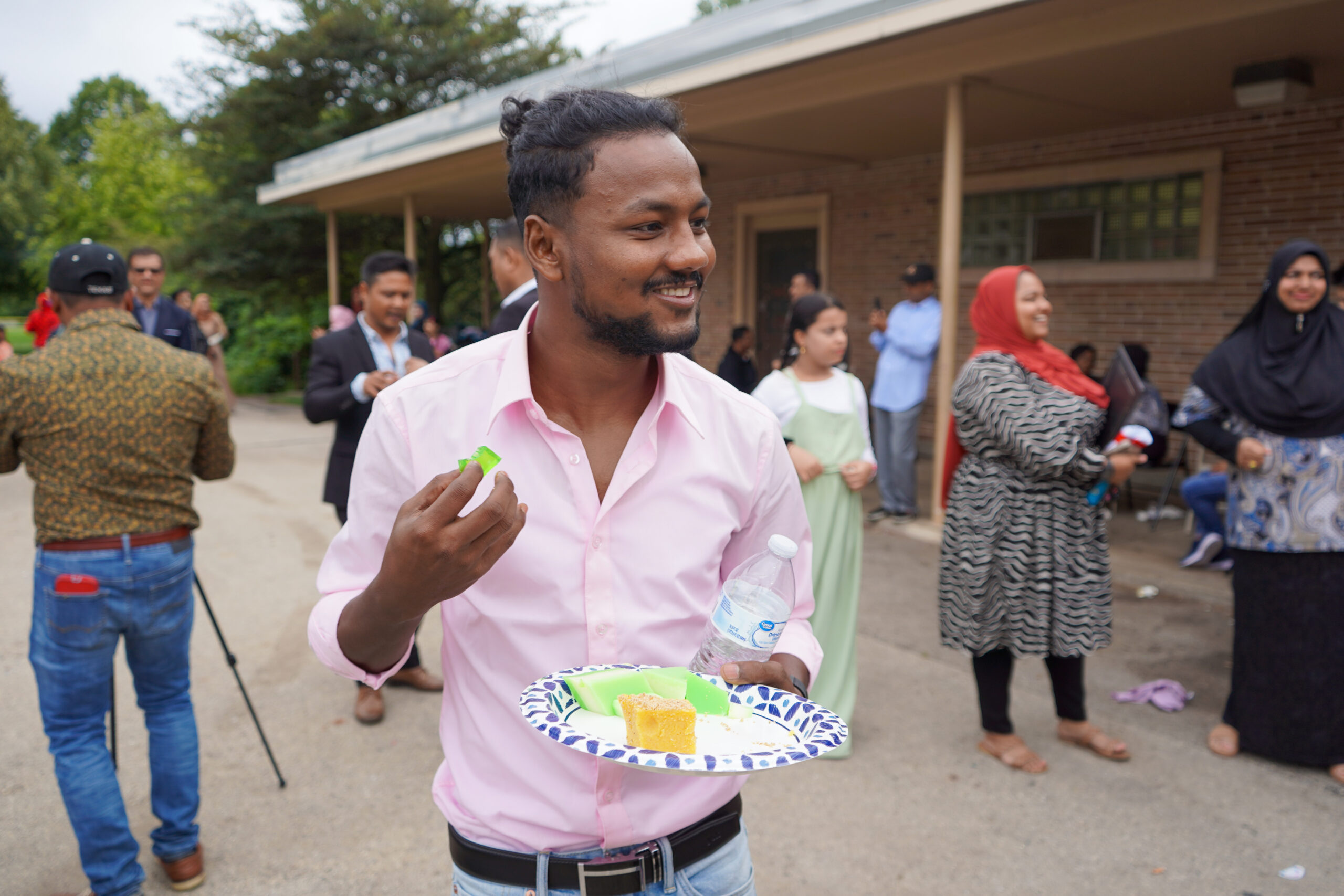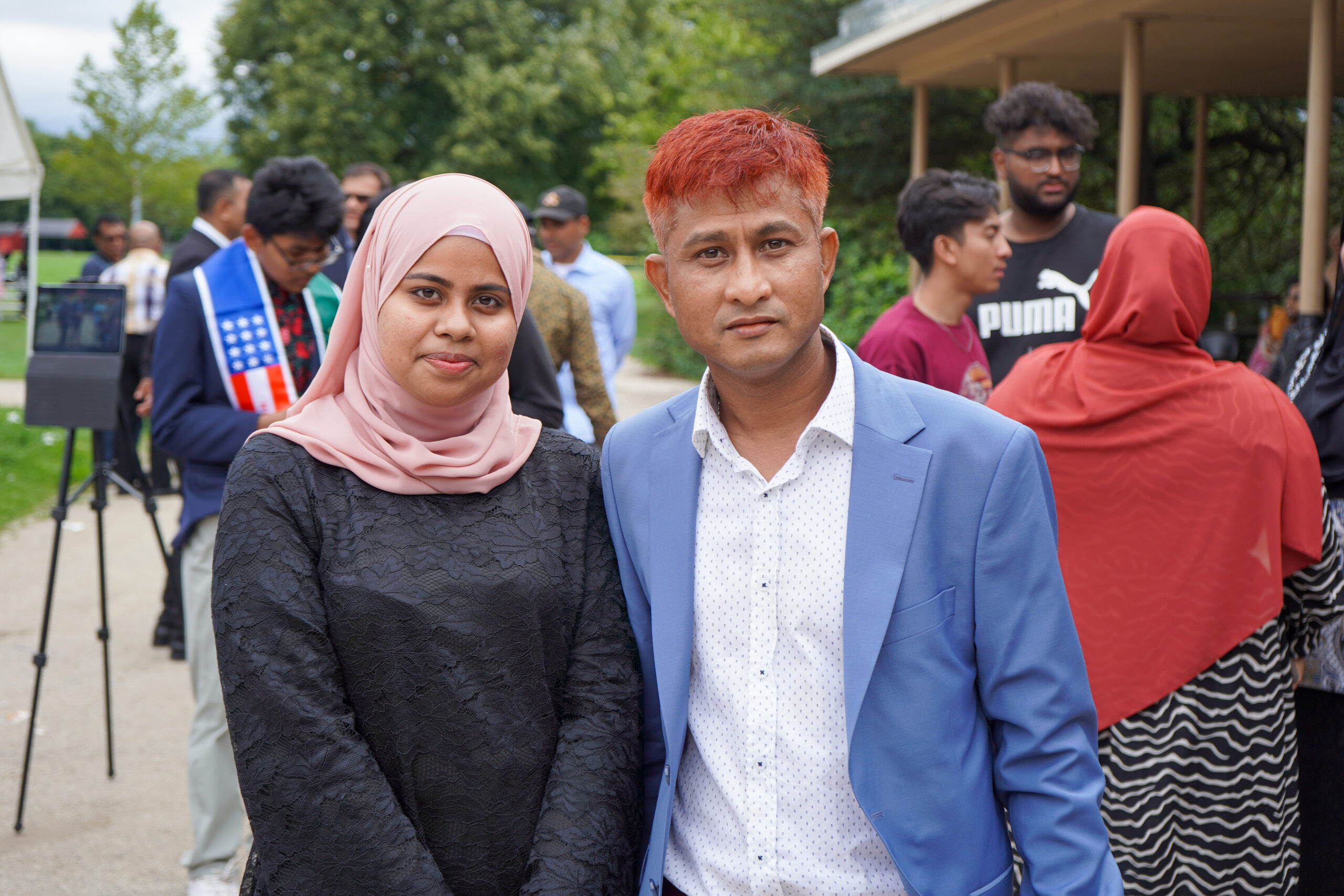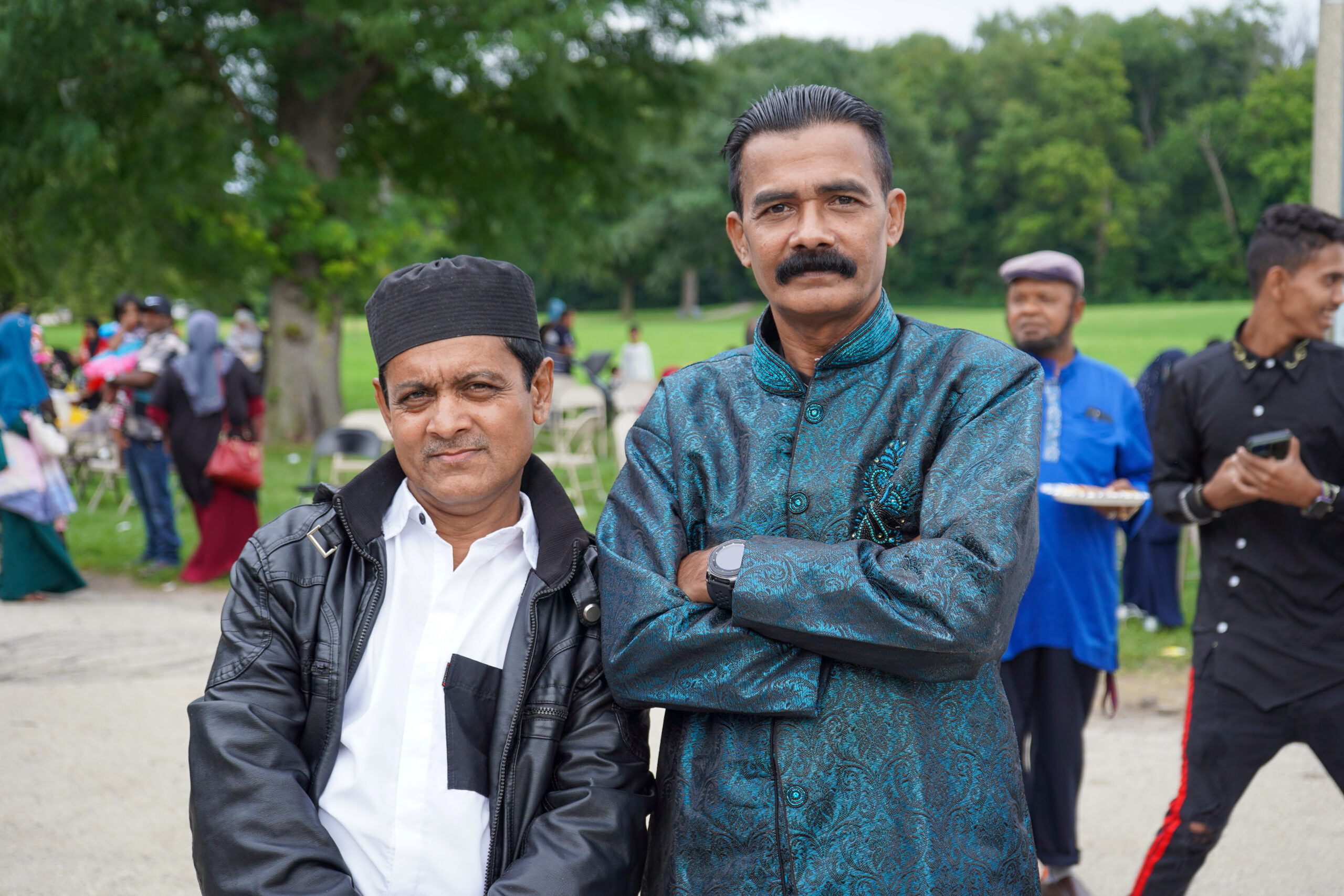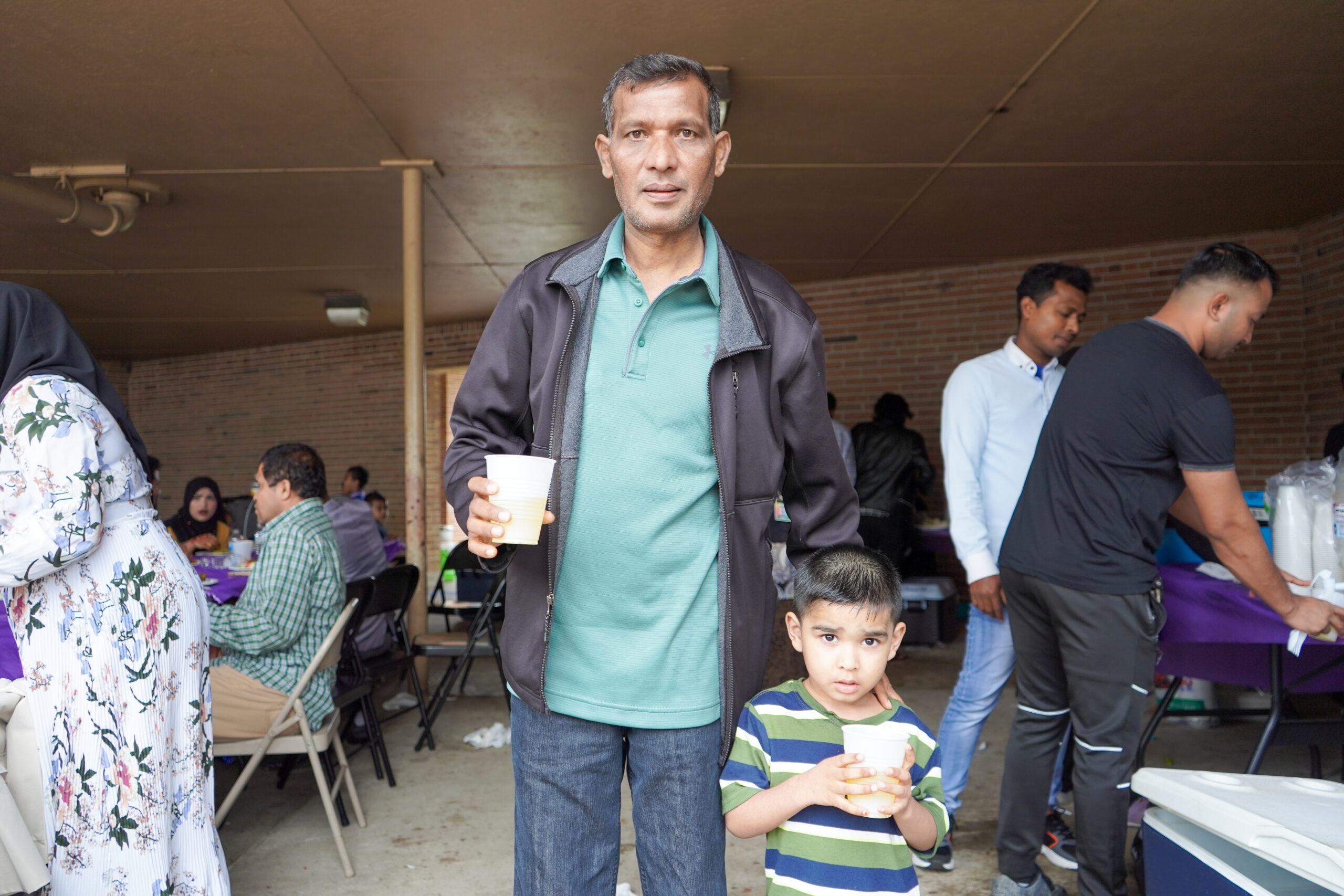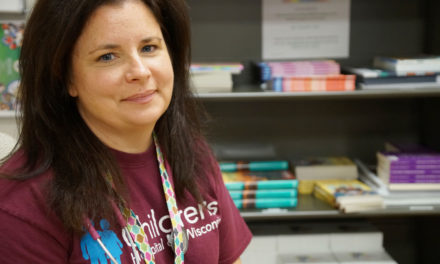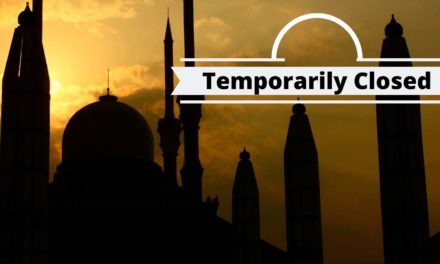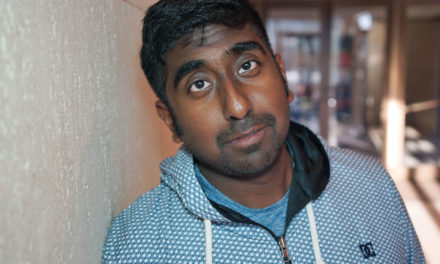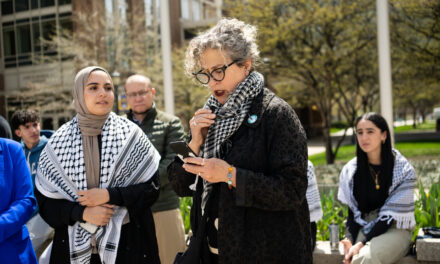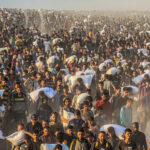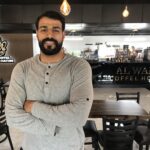
Photos by Kamal Shkoukani
(Second row, left) Othman Atta of the Islamic Society of Milwaukee and Lt. Gov. Mandela Barnes join students and their parents from Milwaukee’s Rohingya community to celebrate the students’ academic achievement.
It wasn’t a typical end-of-summer afternoon Sunday at Wilson Park on Milwaukee’s Southside. In one of Milwaukee County’s largest parks, people were everywhere from late morning until after sunset.
The Annual Rohingya Community Event is back in Milwaukee, the city with the largest Rohingya population in the nation. The annual event was held in 2018 and 2019. Now, after a two-year hiatus due to COVID, a huge, uncountable crowd gathered to celebrate the academic success of Rohingya youth and their parents who supported them.
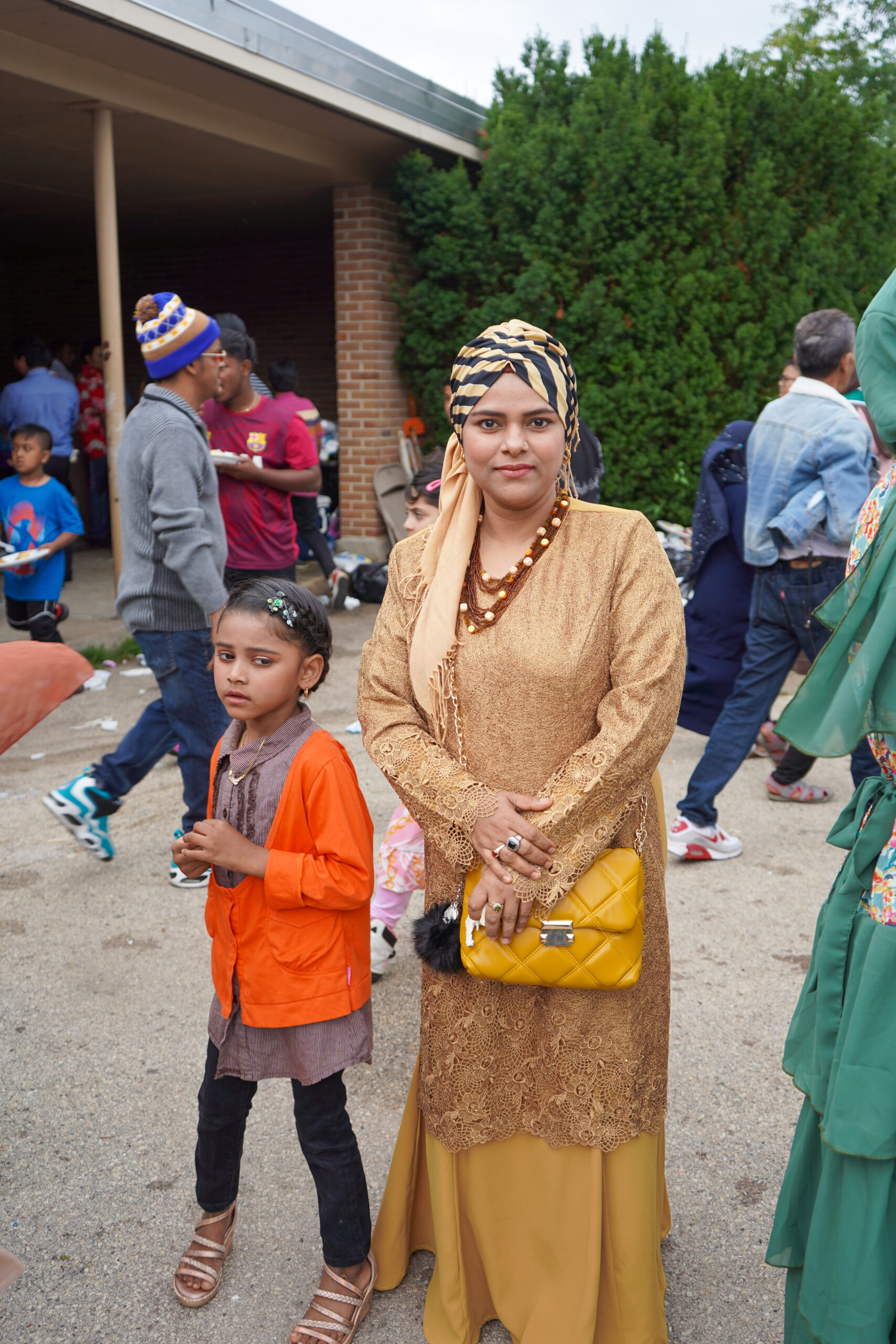
Wisconsin Muslim Civic Alliance executive director Wassim Malas manned another table where he collected email addresses of people who wanted more information about how to participate in the civic process. Nearby, TMJ4 reporter Jessica Madhukar interviewed Max Muhammad, a University of Wisconsin student who serves as the youth representative to the Rohingya American Society, which organized the event.
Meanwhile, inside the pavilion, 100 people sat in chairs and others stood against the walls, all facing a stage and podium for the main event: honoring 82 students who graduated this year from elementary, middle or high school and their parents who supported them.
Among those who took the podium to praise their efforts were Congresswoman Gwen Moore and Wisconsin Lt. Gov. Mandela Barnes. Leaders from the Islamic Society of Milwaukee, shura president Salah Sarsour and Othman Atta, congratulated and encouraged the Rohingya students, as did Dr. Syed G. Mohiuddin, president and founding member of Masjid Al-Huda.
Graduates and their parents each took the stage for their moment in the spotlight, enjoying the gaze of the admiring eyes of their community.
Why education is such a big deal
Women in bright gowns and hijabs walked along paved trails, some pushing strollers, others chatting with friends. Couples strolled under cloudy skies, enjoying the cool breeze. Children chased each other across vibrant green grass.
Three little girls, maybe 5, 4 and 3 years old, skipped together toward a wide field where boys played soccer. They looked like a bright bouquet—one in a pink gown with gold trim, another in bright orange and the smallest in blue and white floral print.
Outside the Wilson Park Pavilion, 1601 W. Howard Ave., families sat in rows at picnic tables, their plates heaped with rice and chicken or beef. Others, finished with lunch, ate watermelon.
On the other side of the brick building, Karen Brubakken, a volunteer from the League of Women Voters, handed brochures to adults, and buttons and stickers to children. Many from the Rohingya community showed interest in learning more about how and why to vote, Brubakken said. “Only two registered, but many couldn’t because they didn’t bring IDs or they are not yet citizens.”
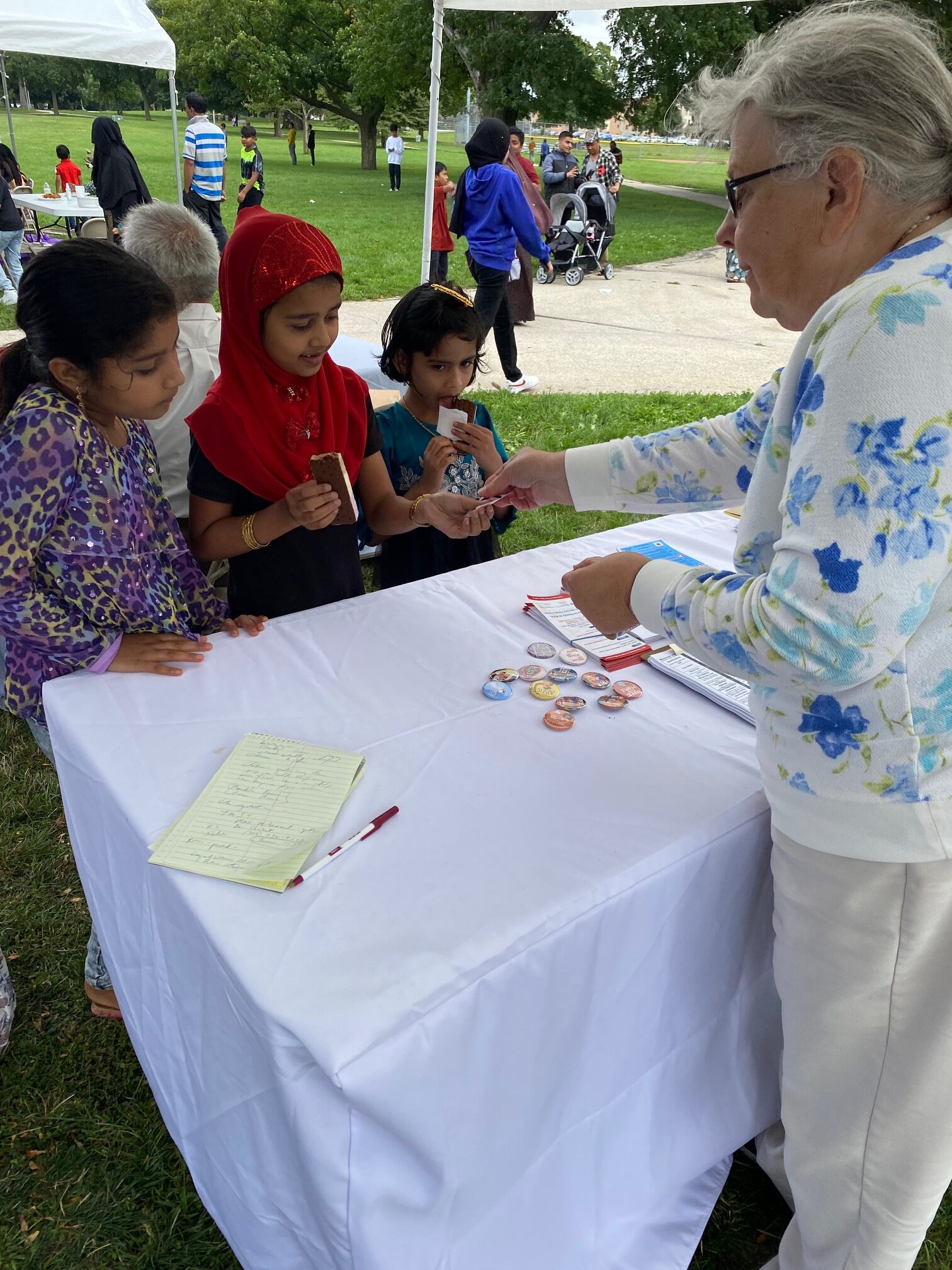
Karen Brubakken, a League of Women Voters’ volunteer, educates “future voters.”

Rohingya American Society presented certificates to 82 graduates at Sunday’s ceremony.
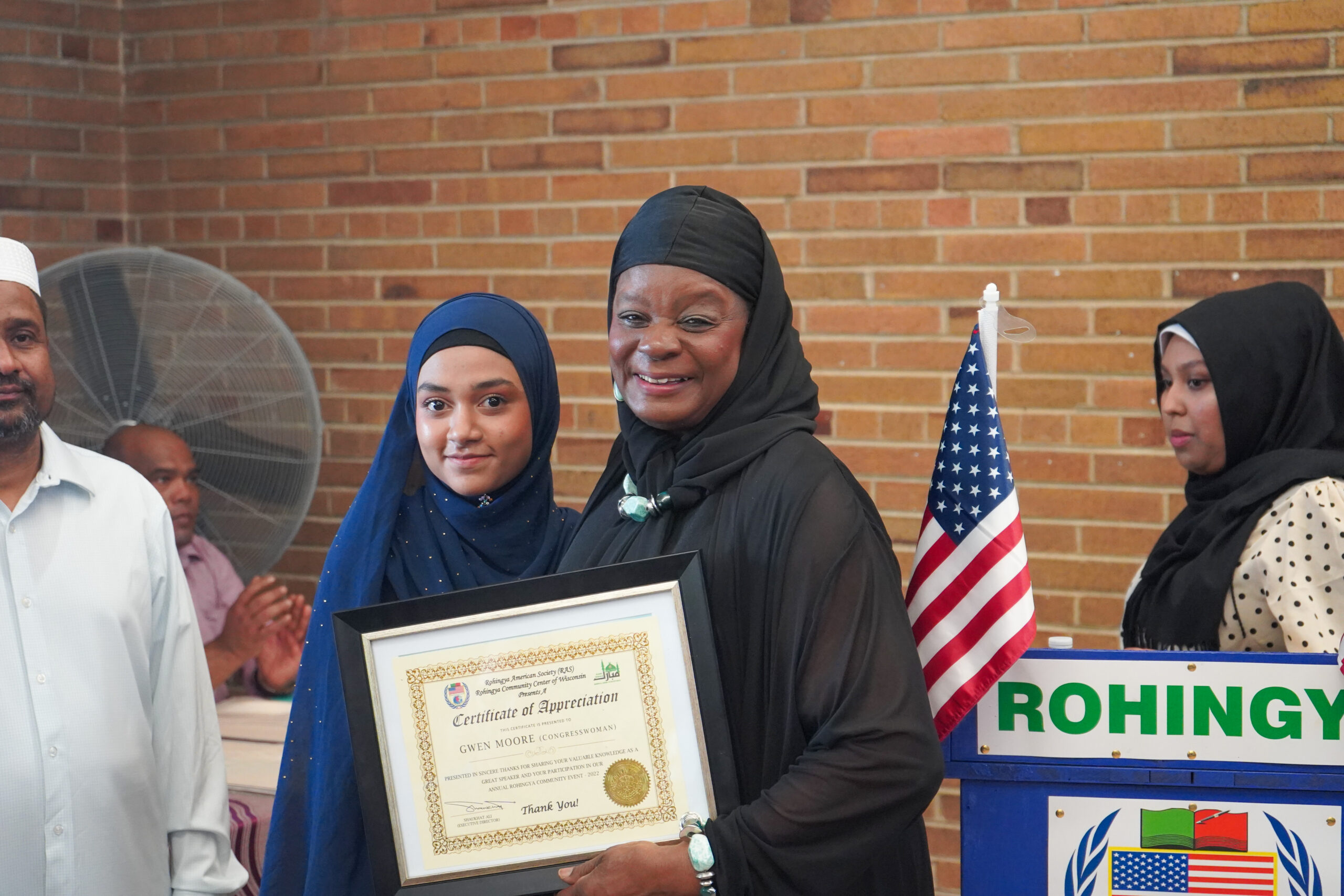
Congresswoman Gwen Moore receives a certificate of appreciation from the Rohingya American Society.
“The purpose of this event is to congratulate our community’s students who have graduated from school, elementary, middle or high school, and their parents who worked very hard to promote education to their children,” Shaukhat Kyaw Soe Aung Ali, the founder and executive director of the Rohingya American Society, said in an interview after the event.
“I was the first Rohingya refugee in Wisconsin,” he said. He came Feb. 1, 2002, and settled in Hartland. “I had one daughter at that time and she was the emcee today.
“All our immigrants came here without speaking English. They did not have a chance to go to school in Burma. They didn’t have a chance to go to school in Malaysia or Thailand, their second countries (where they lived after fleeing persecution in Burma).
“Since they arrived here, they finally have a good chance to get an education,” he said. “They came as refugees and now they are going to schools and universities.”
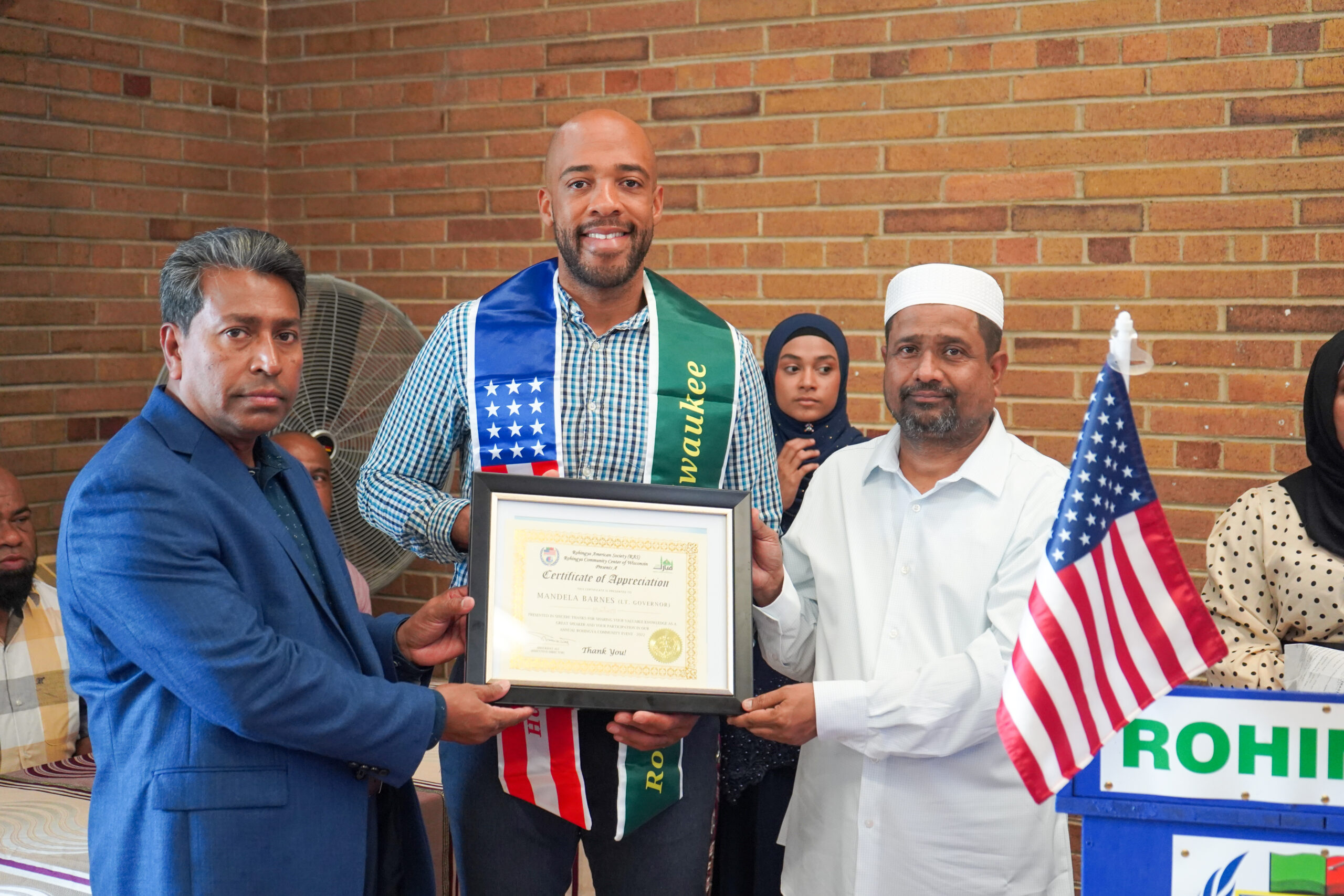
(Left) Shaukhat Kyaw Soe Aung Ali, executive director of the Rohingya American Society, and (right) RAS executive committee member Ayub Ghafer present a certificate of appreciation to Wisconsin Lt. Gov. Mandela Barnes (center).
Rohingya, a Muslim ethnic minority in Myanmar (Burma), has faced repression for decades. They were not given citizenship or basic rights. Since the early 1990s, more than one million of them have fled persecution, according to the United Nations High Commission for Refugees (UNHCR).
In 2016 and 2017, violence intensified across northern Rakhine State, a state in Myanmar where Rohingya lived. It “was extreme, large-scale and widespread,” U.S. Secretary of State Anthony Blinken explained when he announced in March the U.S. government’s decision to officially declare genocide against the Rohingya has taken place.
Milwaukee’s Rohingya community is said to be the largest in the U.S., Ali said. As of June 2021, Milwaukee’s Rohingya community is estimated to be between 2,300 and 4,000, according to reporting from AsiamattersforAmerica.org.
Ali founded the Burmese Rohingya American Friendship Association in 2012, which was renamed the Rohingya American Society in 2014, when it was registered as a non-profit to serve the resettled Rohingya and Burmese refugee community in the Greater Milwaukee area. Its mission is “to bring hope through education, religious, healthcare, cultural empowerment and socio-economic development programs.”
RAS is also a public advocacy group that endeavors to restore basic fundamental human rights and national citizenship status, justice and freedom of ethnic Rohingya minority people in Burma (Myanmar), Ali said.
About the celebration
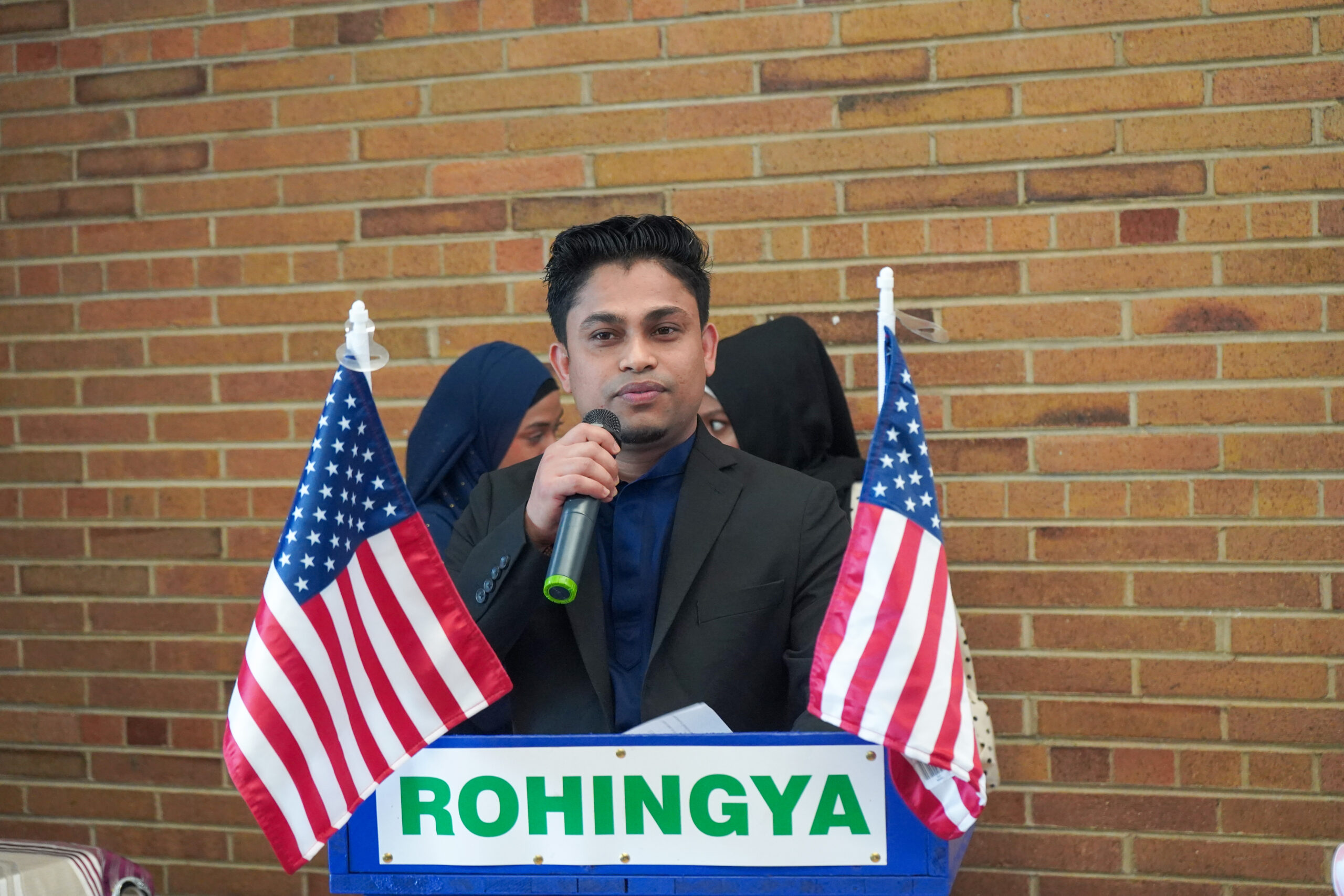
“This is the first time I have seen so many come together in one place, guests and people from our community,” Ali said. “Many people in our community know how to make our cultural foods. All of the foods were prepared by people in our community, men and women.
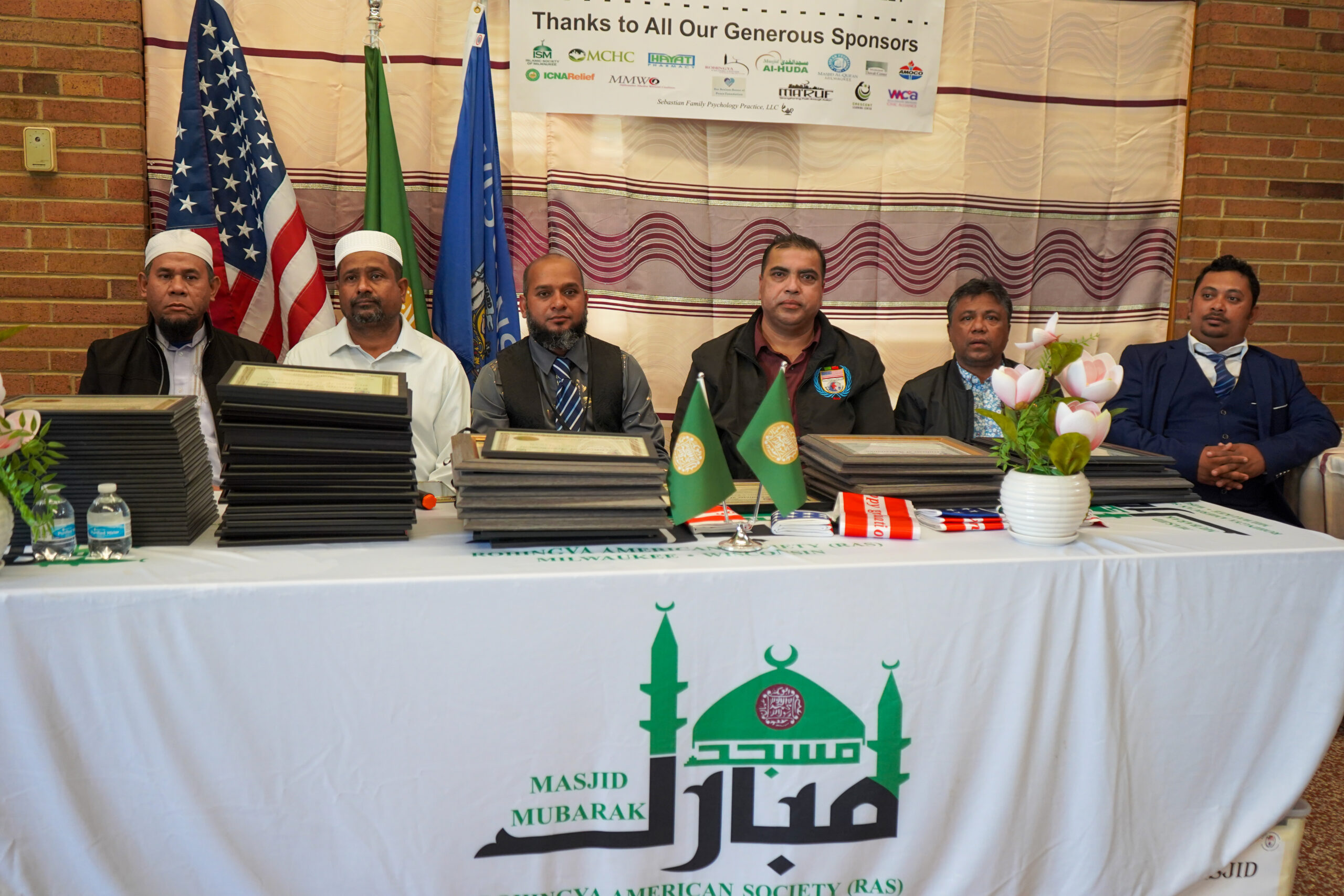
“After 5:30 p.m., when we completed the speech program, more people came. Some had gone to a wedding then came to our event. People were there until 8 p.m. I believe 95% of the refugees from the Rohingya community attended. It gives a very good impression of our community.”
Ali said he was also grateful for all the support received from organizations and the Greater Milwaukee community. Event sponsors included: Islamic Society of Milwaukee, Muslim Community and Health Center of Wisconsin, Hayat Pharmacy, Rohingya Culture Center, Masjid Al-Huda, Masjid Al-Qur’an, Milwaukee Islamic Dawah Center, INCA Relief, Milwaukee Muslim Women’s Coalition, Dar Asalam House of Peace Foundation, MA’RUF, Crescent Learning Center, AMOCO, Wisconsin Muslim Civic Alliance and Sebastian Family Psychology Practice, LLC.
“I also got the impression from Congresswoman Moore’s and Lt. Gov. Barnes’ speeches, and our other guests, that they share our commitment to education and were impressed to see our community growing from resettled refugee status to university graduates and citizens.”
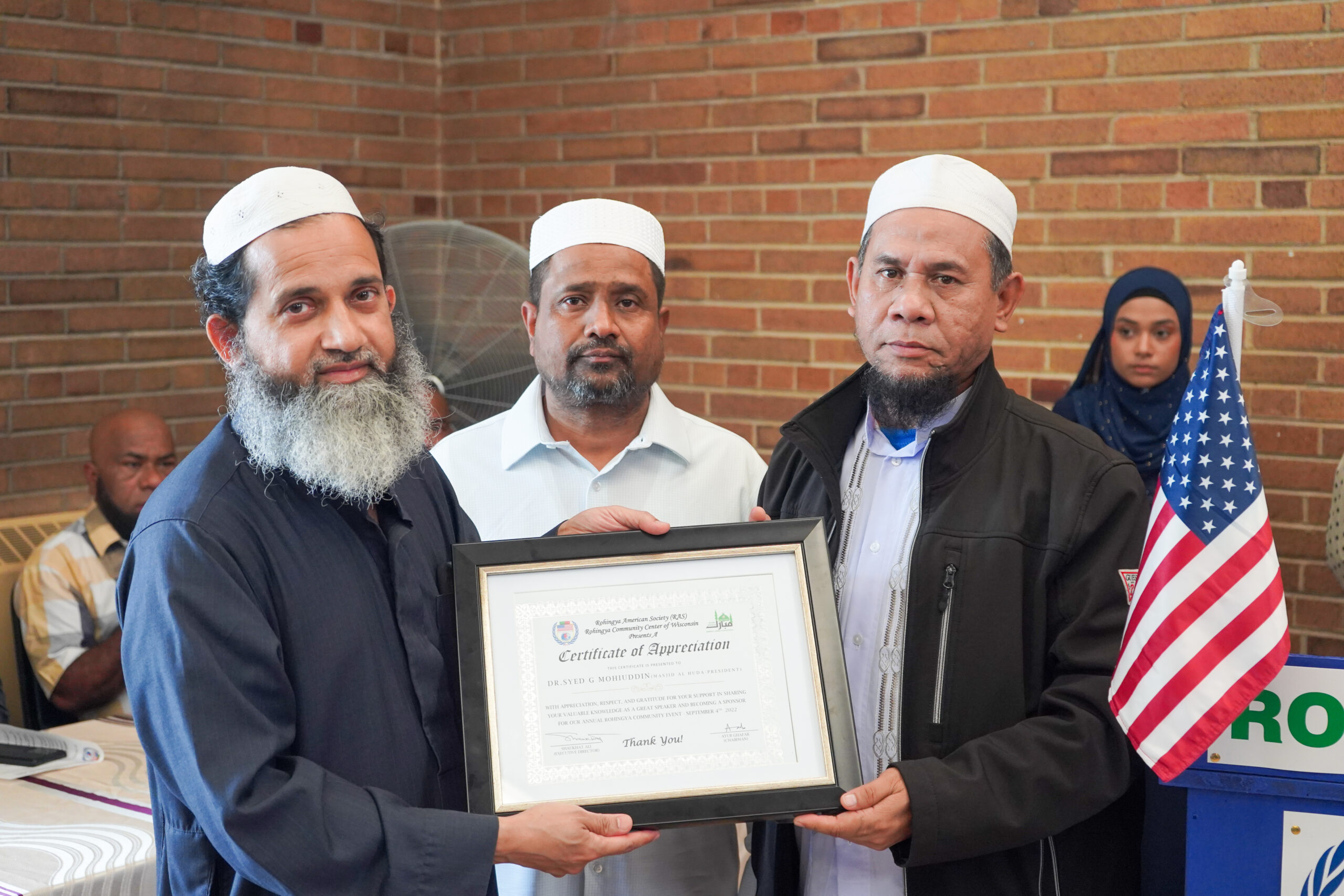
Dr. Syed G. Mohiuddin of Masjid Al-Huda , president and founding member of Masjid Al-Huda. received a certificate of appreciation from representatives of Masjid Mubarak, established in 2015 by the Rohingya American Society.
In his remarks, ISM president Salah Sarsour said, “It’s my honor to be among such a strong community that values education. They were forced out of their country. Nevertheless, they continued their journey in life, continuing their education and faith. I’m proud of those who never stopped reaching their goals in spite of the hardship they faced.
“As ISM and Muslim community leaders, we will continue working hard with our community youth and young professionals to serve them with programs and events to keep them motivated and moving towards their goals.”
(Below) Islamic Society of Milwaukee president Salah Sarsour receives a certificate of appreciation from the Rohingya American Society.
